The best coffee grinders – recommended by baristas and tested by our appliances expert
I tested nine coffee grinders across five brewing methods – French press, drip coffee, espresso, Moka pot, and AeroPress – to find the best ones on the market
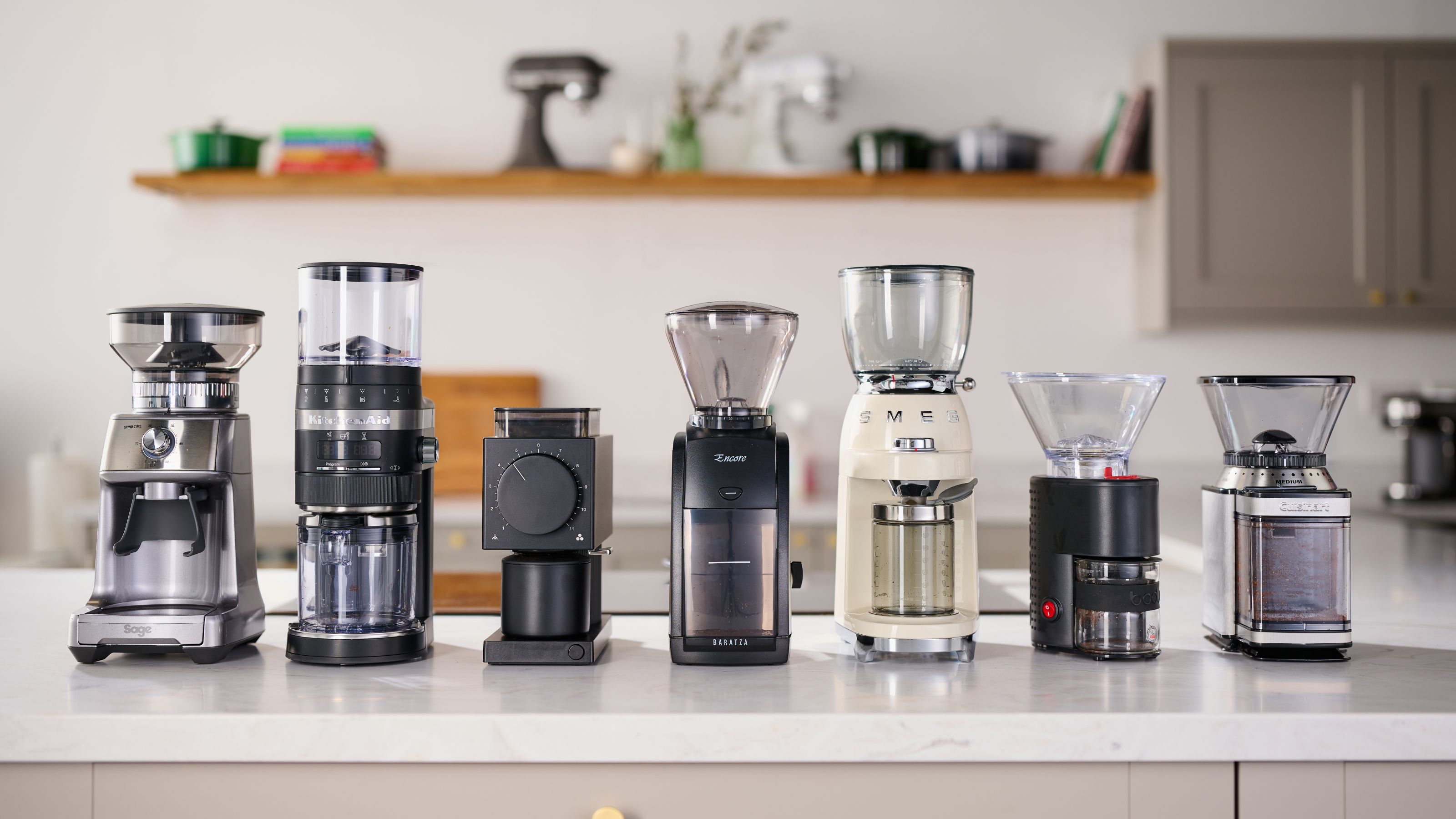

Choosing quality coffee beans is one step toward creating the perfect at-home brew. But even if you have one of the best coffee makers and the finest, organic beans, they won’t reach their full potential if they aren’t ground correctly. Aficionados know that the secret to an incredible cup of coffee is freshly grinding the beans to the right size for your brew style – something that’s hard to achieve without one of the best coffee grinders.
I'm a coffee obsessive, so I reached out to industry-leading experts to help me with the nitty gritty. Mark Trujillo, founder of Hub Coffee Roasters, explained: 'The grinder is the most important tool in your belt as a barista. The size that you grind your coffee dictates how fast or slow the water will move through the coffee grounds for brewing, which can greatly affect the extraction and taste of your coffee.'
Paul Piggot, co-founder of Podium Coffee Club, pointed me in the direction of the best models on the market, explaining that 'Burr grinders outperform blade grinders by achieving much more uniform coffee grounds. The adjustable grind settings and minimal heat generation are other advantages, making a quality grinder an amazing tool for coffee lovers.'
Armed with a bunch of brand recommendations from the experts (including Baratza, Fellow, Moccamaster and OXO), I got to work, grinding everything from ultra-fine espresso to coarse French press grounds. One grinder stood out: the Baratza Encore. It was the most recommended and topped my own tests for precision and ease of use. But I also realised that you don't need to spend big bucks to get a superb grind. I found affordable options, small manual alternatives, as well as some super stylish options for your coffee nook.
The quick list
Fresh out of the coffee pot, here are the headlines on our favorite grinders. I go into more detail and cover the barista's opinions further down the page.
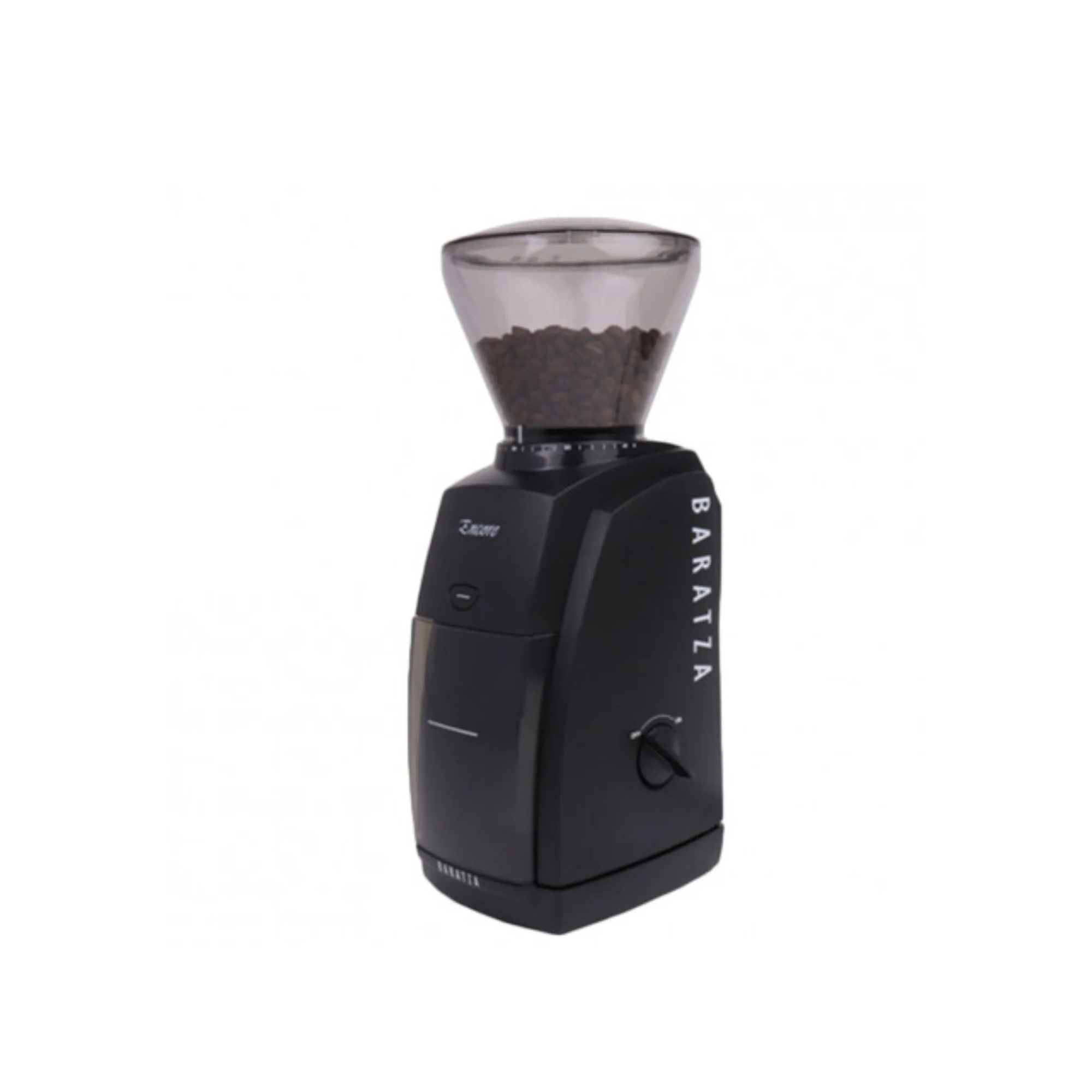
This grinder has the most precision of all the models I tested. It's durable, hard-working, and has forty different grind settings for any style of coffee. It's a great buy.
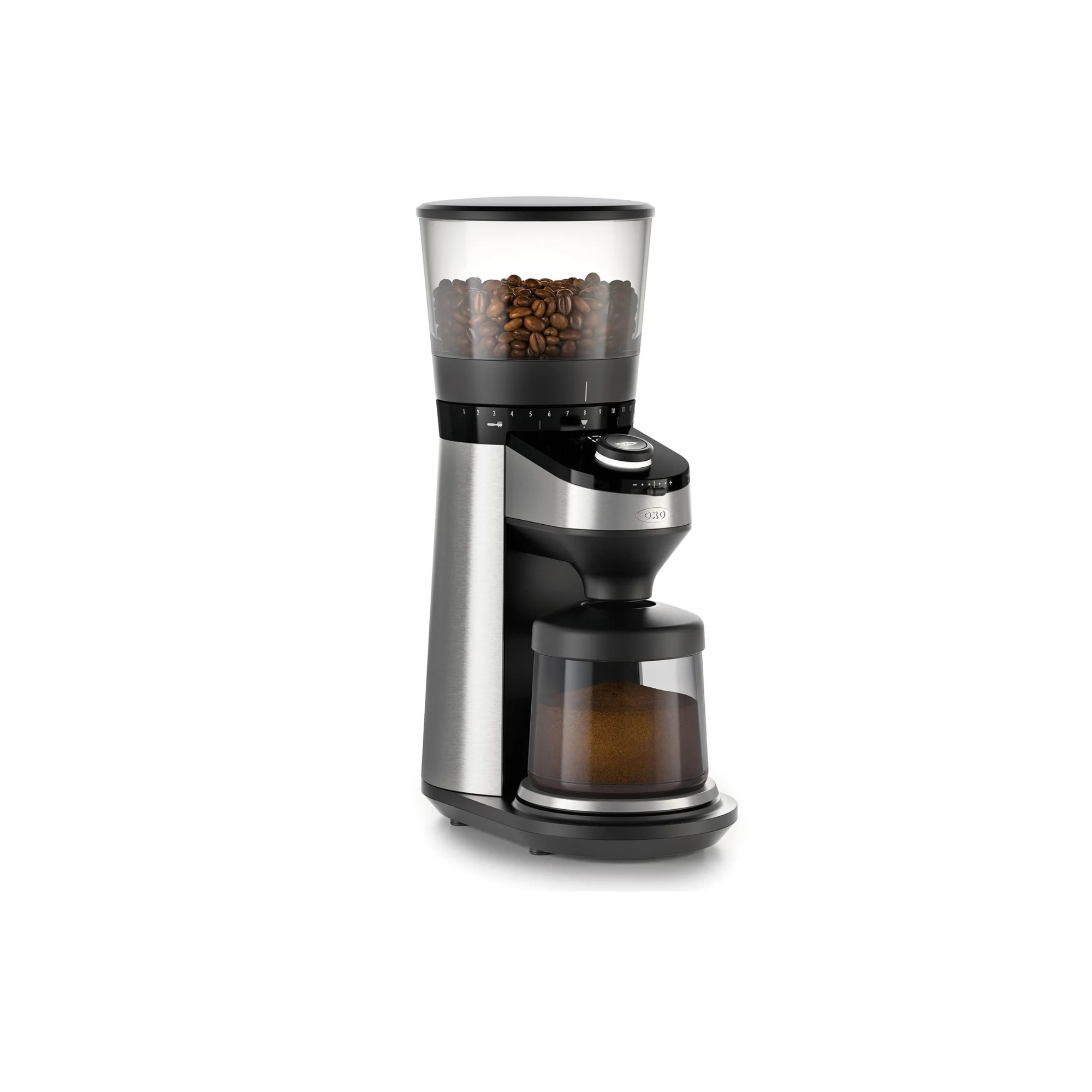
If you're new to the coffee grinding game and you don't want to splurge on a high-spec model, you'll love this frugal option. It's a great all-rounder, but it is not a fine grind specialist.
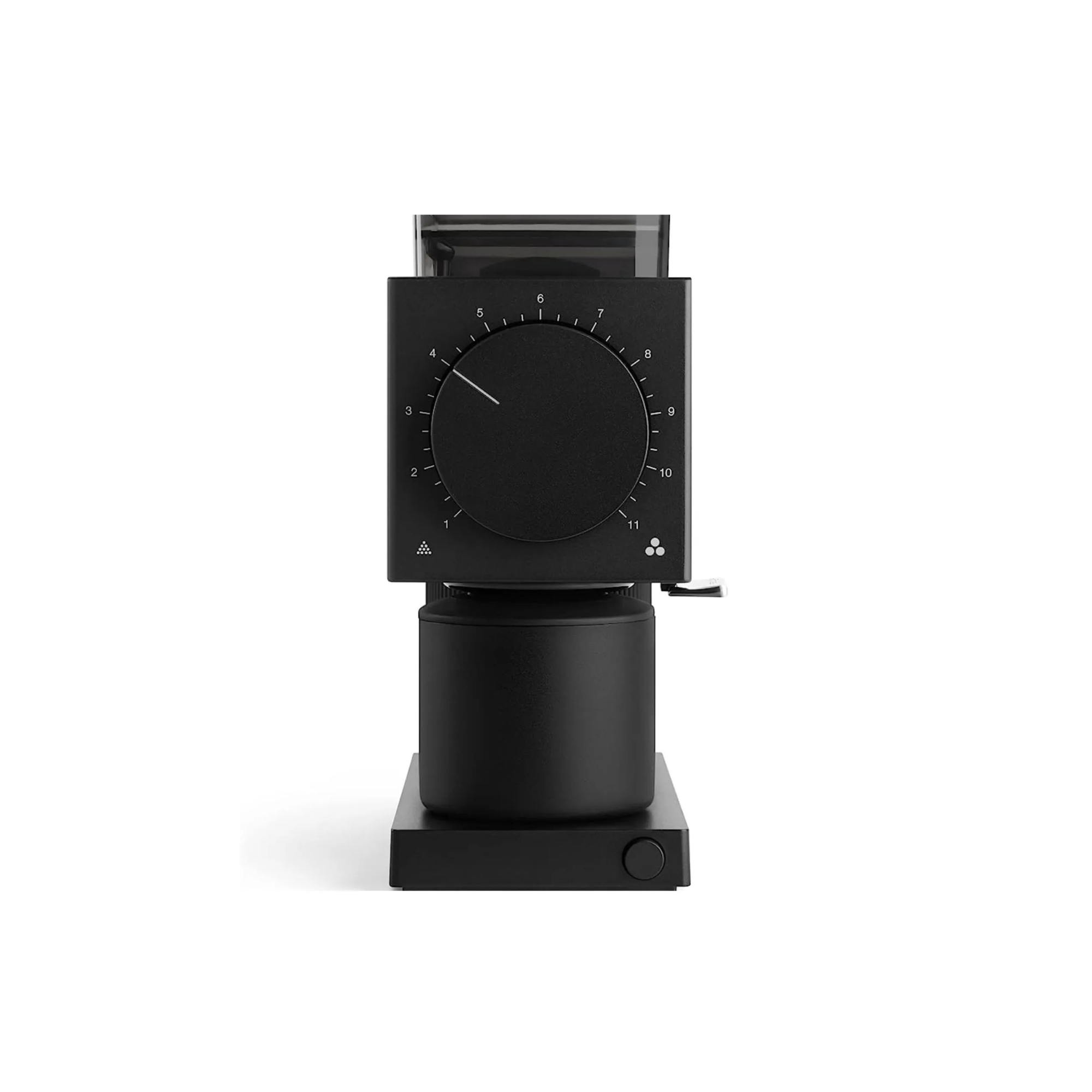
Chic and reliable, this grinder unites form and function. The flat burrs create a flavorful brew without being too loud or industrial. It would be top, but it can't do espresso and it's expensive.
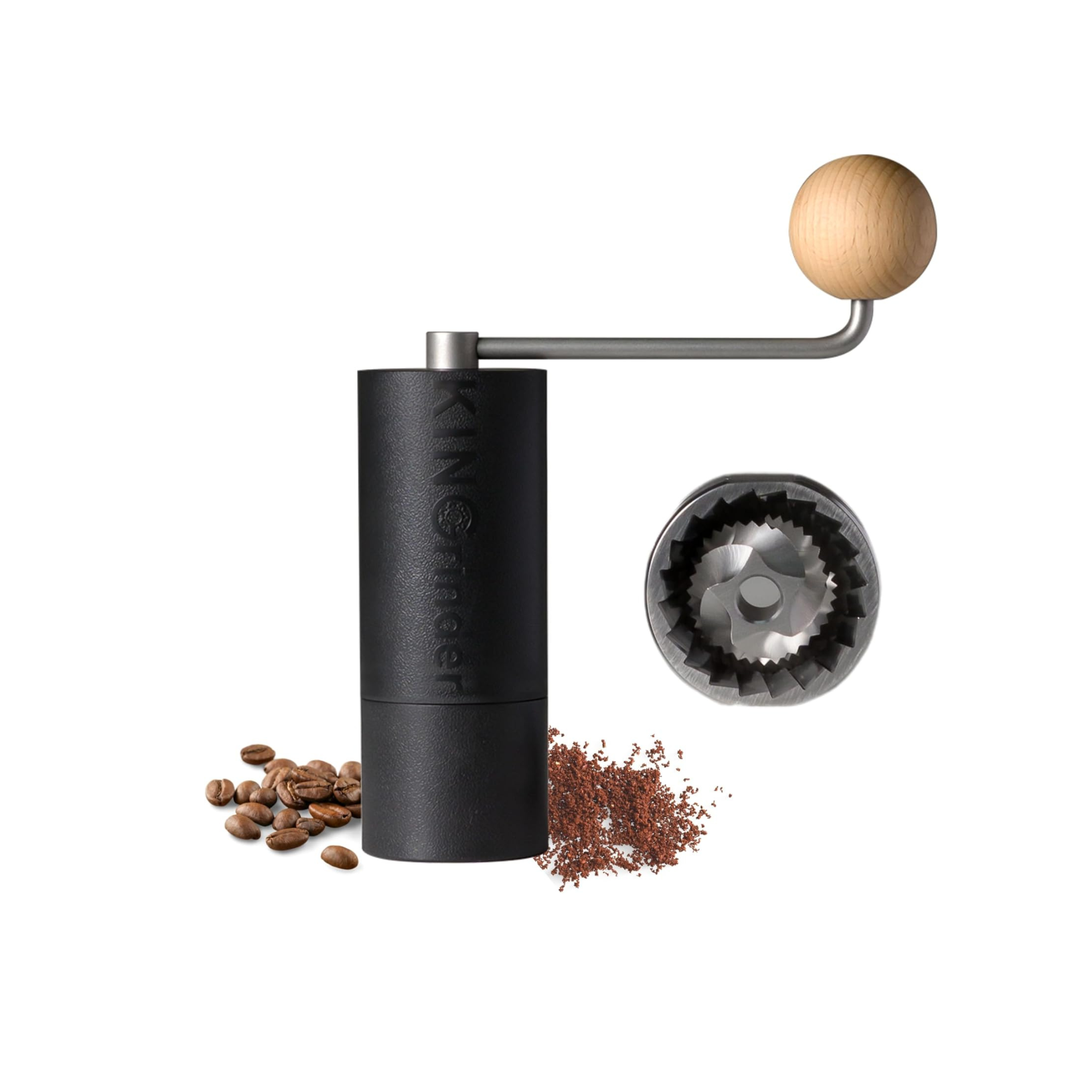
If you're looking for a compact cordless grinder, this is the one for you. Easy to use and extremely consistent, you can take this wherever you go. It's too small for large servings, though.
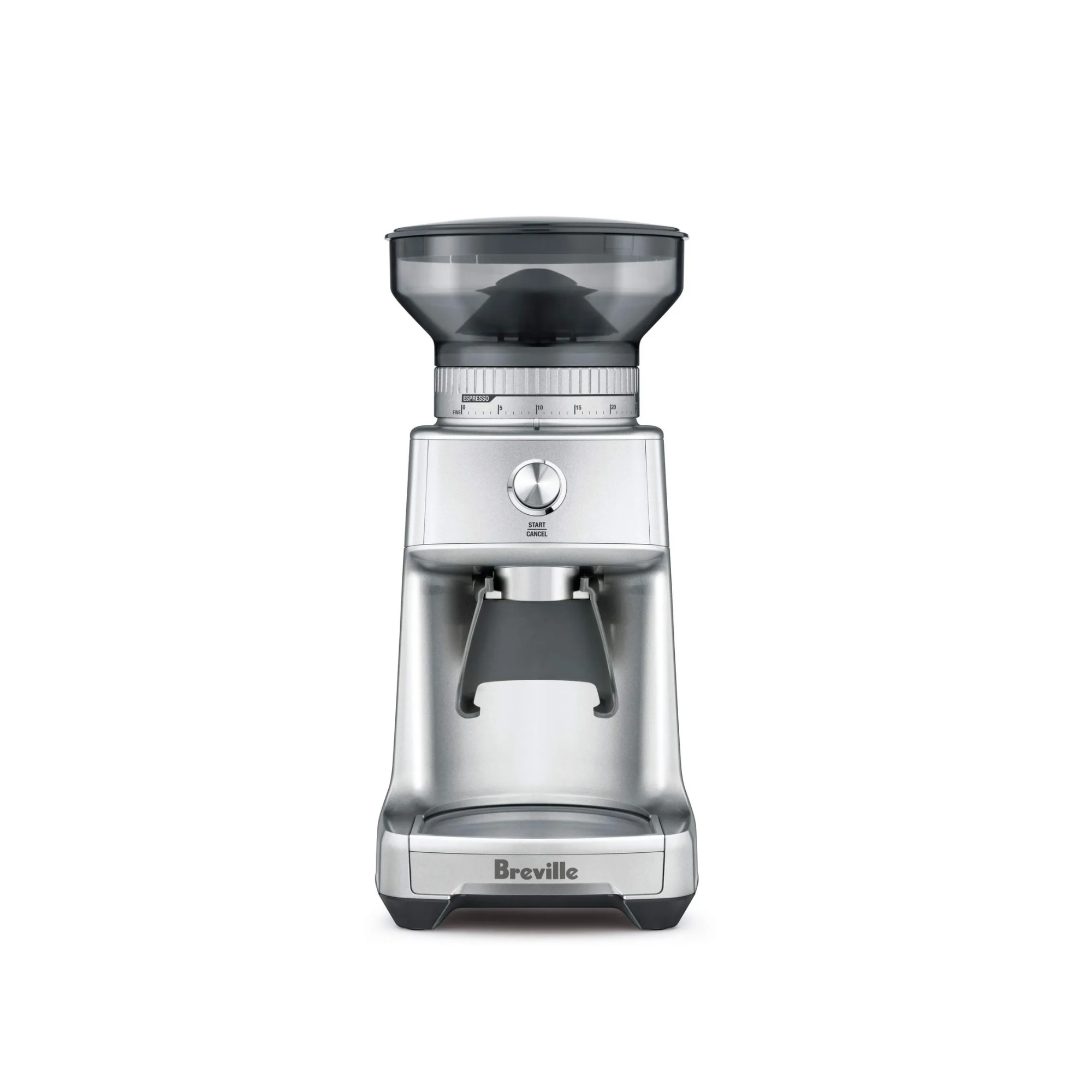
Not all grinders can grind fine espresso grinds, but the Breville specializes in this. If you're a beginner, the pre-set doses are incredibly useful to follow. It's speedy and quiet, too.
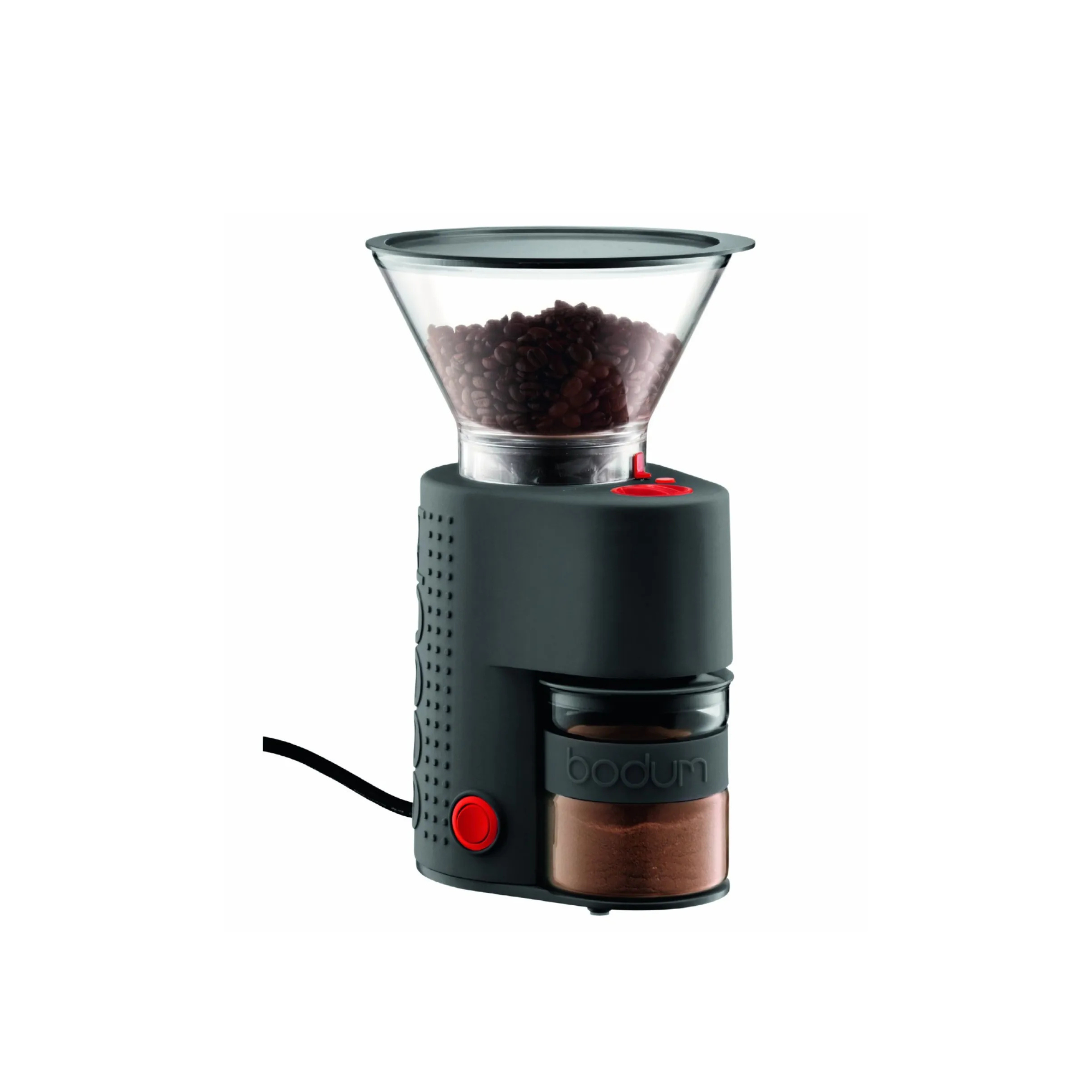
If you want to grind fresh beans to serve coffee for a crowd, this is a good size and comes with a premium glass grounds container. It's affordable, too.
The best coffee grinders 2025
The best coffee grinder overall
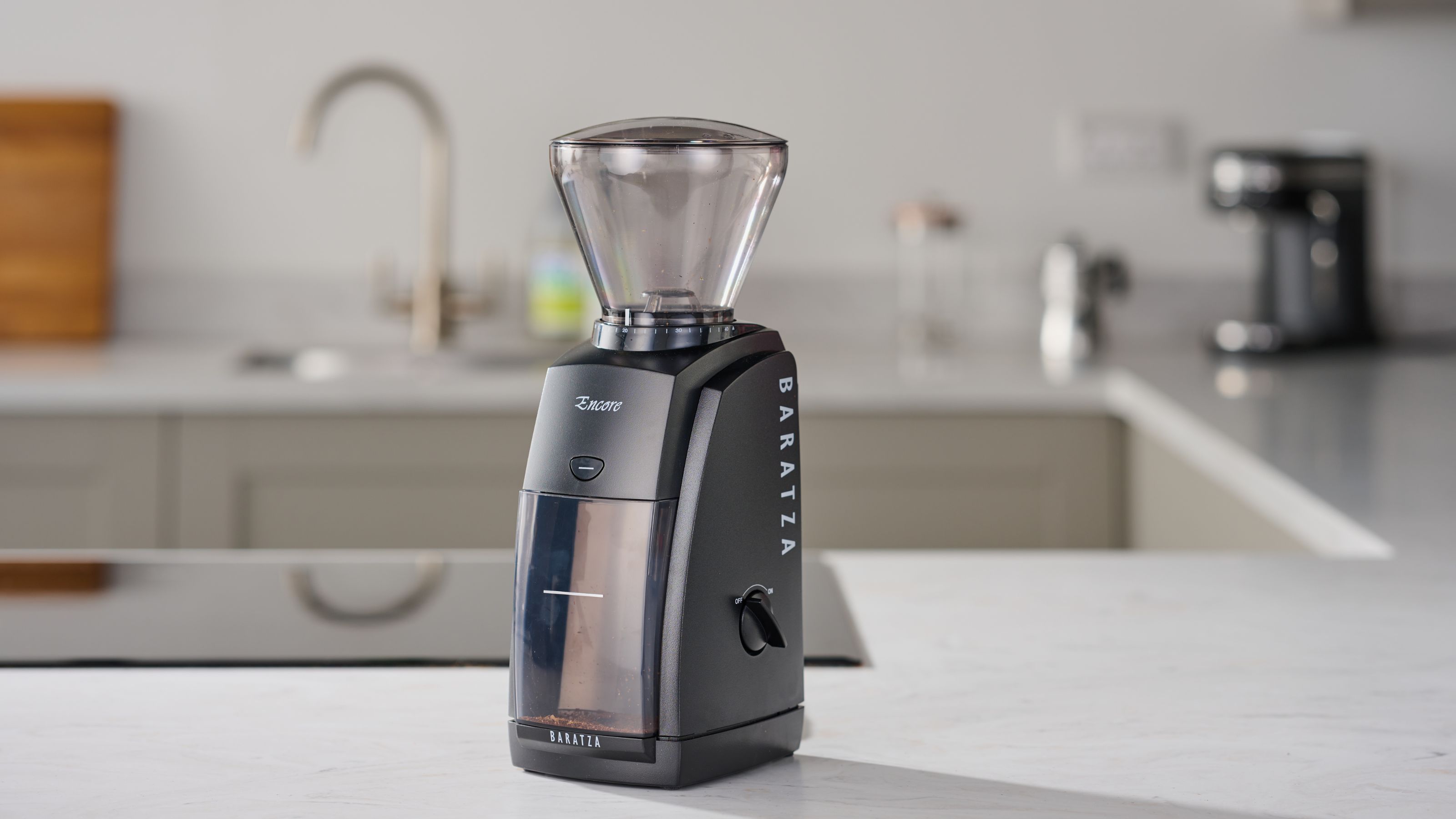
1. Baratza Encore Coffee Grinder
Our expert review:
Specifications
Reasons to buy
Reasons to avoid
The Baratza Encore Coffee grinder was the most recommended grinder from all 18 baristas I interviewed for this guide. The name came up again and again in conversation, accompanied by such high praise, so I knew I had to try it.
I wasn't disappointed. In the test kitchen, I found the Encore incredibly easy to use, featuring a simple on/off switch and a pulse button for manual control. On all my taste tests, the Baratza Encore Coffee Grinder passed with flying colors, creating the finest, fluffiest particles for my espresso shots, as well as for pour-over coffee, Moka pot, drip coffee, and more.
Dave Lanning, a certified organic craft coffee roaster, owner of two cafes and provider of wholesale whole-bean coffee, has been in the industry for three decades and has used the Baratza grinder at home for seven years. He told me: 'The Baratza Encore is truly a game-changer for home brewers. I've seen countless coffee enthusiasts transform their morning cups after switching to this grinder. It's not just about getting fancier equipment – it's about discovering flavors you didn't know were hiding in your beans!'
At around $170, it's not the most expensive option on our list, but it's a fair investment. However, the experts assure me that this will pay off. Dave praises the hardened steel burs, saying: 'It's built like a tank.' Coffee expert at Cafely, Mimi Nguyen, agrees. She uses this grinder for her Vietnamese coffee, praising Baratza's user serviceability and quality customer service. As long as you stay on top of your maintenance, cleaning around the removable burrs, this grinder can last years in your coffee routine.
The best value coffee grinder
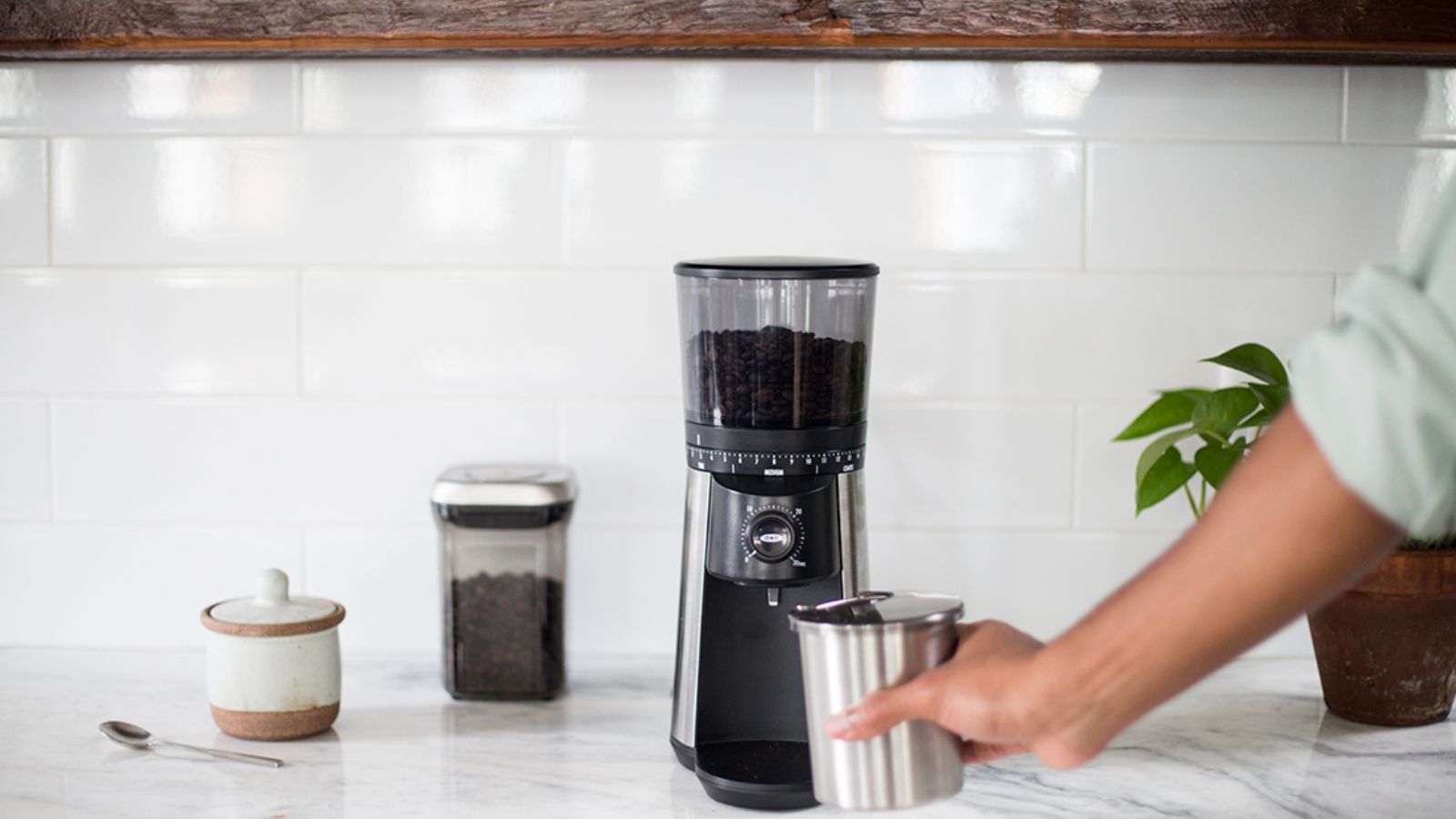
2. OXO Conical Burr Coffee Grinder
Our expert review:
Specifications
Reasons to buy
Reasons to avoid
OXO is one of my favorite brands for frugal, but incredibly practical kitchen accessories. If you're new to the at-home coffee game and don't want to splurge on a high-spec model, you'll get along with the OXO grinder. It's far from fancy, but a good value option under $100.
First off, it uses high-quality steel conical burr grinders, which can cost upwards of $250. Secondly, the design is sleek and small, so it doesn't dominate the coffee nook. To get started, all you need to do is pour your coffee beans into the bean hopper and select your grind time. I liked the darkened, airtight lid, which means you can store your whole coffee beans without them going stale. However, given that the ground container is opaque stainless steel, you can’t see how much you grind each time. This was a little frustrating; I found it easier to measure out exact, single doses of beans to avoid waste.
In terms of performance, the OXO excels on coarse and medium grinds, and it doesn’t suffer from the static that other machines do. It's one of the cleanest coffee grinders I tested.
There are some snags: it's a little loud (97 decibels for coarse grinds), it can be fiddly to clean, and it's not ideal for fine grinds. The fine grinds weren't terrible, per se, but I wouldn’t use this for Turkish coffee or espresso. It doesn't quite cut it. Plus, when it comes to cleaning, you can't remove the lower burr to get a thorough clean, which was irritating. However, at under $100, I can cut it a lot of slack. It's a real steal.
The best coffee grinder design
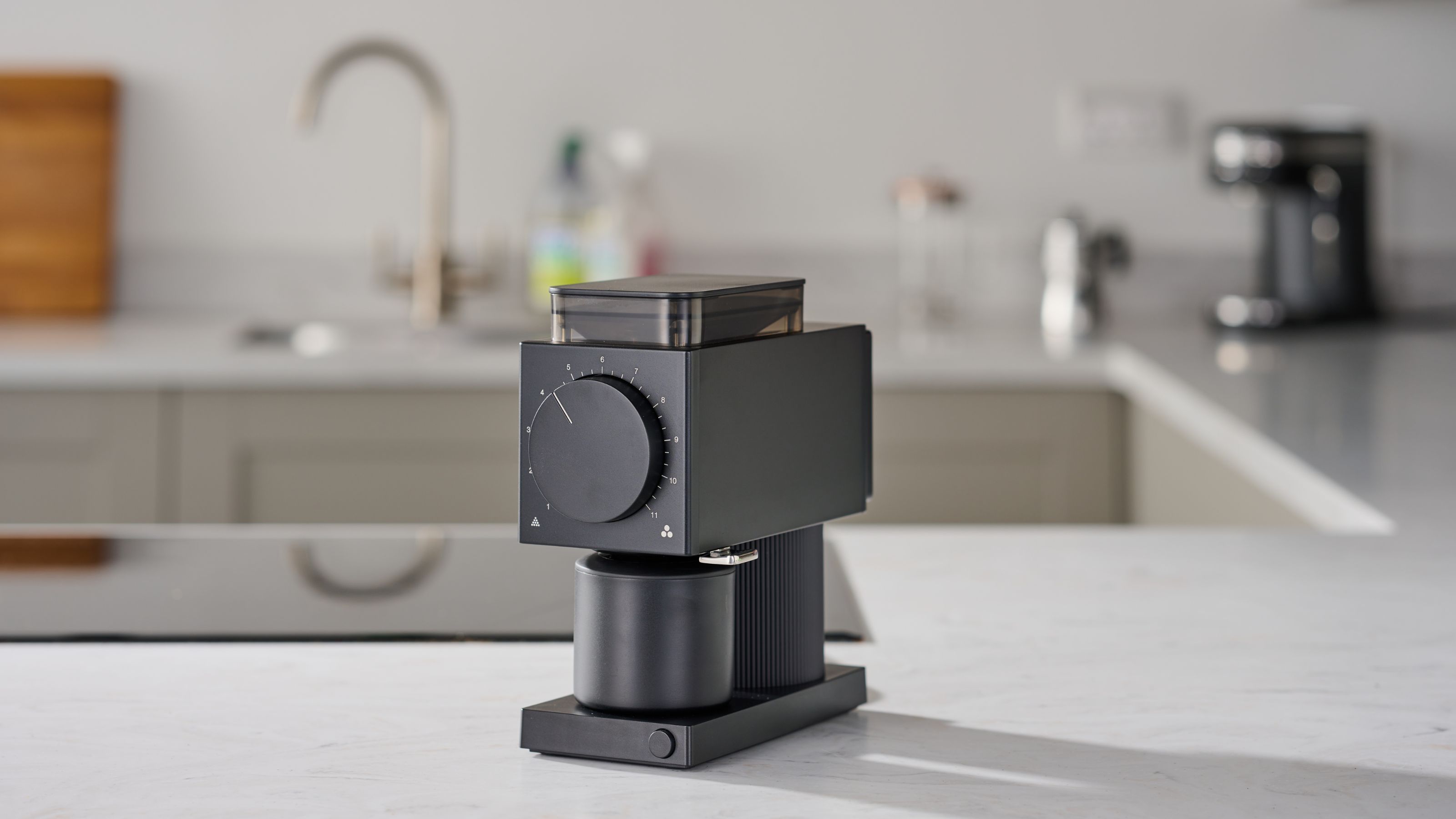
3. Fellow Ode Gen2 Coffee Grinder
Our expert review:
Specifications
Reasons to buy
Reasons to avoid
As the only flat-burr grinder in this lineup, it delivers a highly uniform grind, ensuring precise extraction and highlighting intricate, bright, and acidic flavors. No surprise – it was developed by Nick Terzulli, Fellow’s Certified Q Grader, a top expert in coffee sensory assessment.
Coffee grinders can be clunky, but this one is chic and sleek enough to proudly display on your counter. The range of 31 grind settings is ideal for pour-over, drip, and French press lovers – in my tests, every grind was consistent and the coffee was delicious. However, it can’t grind fine enough for espresso, so espresso lovers may prefer the Breville below.
I enjoyed the large 100-gram hopper, which allows for multiple cups and in my tests, the load bin kept beans flowing smoothly with minimal mess. There is also anti-static technology, which helps prevent coffee grounds from clinging to surfaces or scattering across the counter.
All in all, the Fellow Ode is a quiet, consistent, beautiful grinder. Barista Lindsey Sozio, founder of Lavender Coffee Boutique, sums it up perfectly: 'What I love most about the Fellow Ode Grinder is its reliability. It consistently delivers accurate grind sizes, making it incredibly easy to dial in my preferred brew. Plus, it's a beautiful piece of equipment. The combination of form and function is truly exceptional.'
The best portable coffee grinder
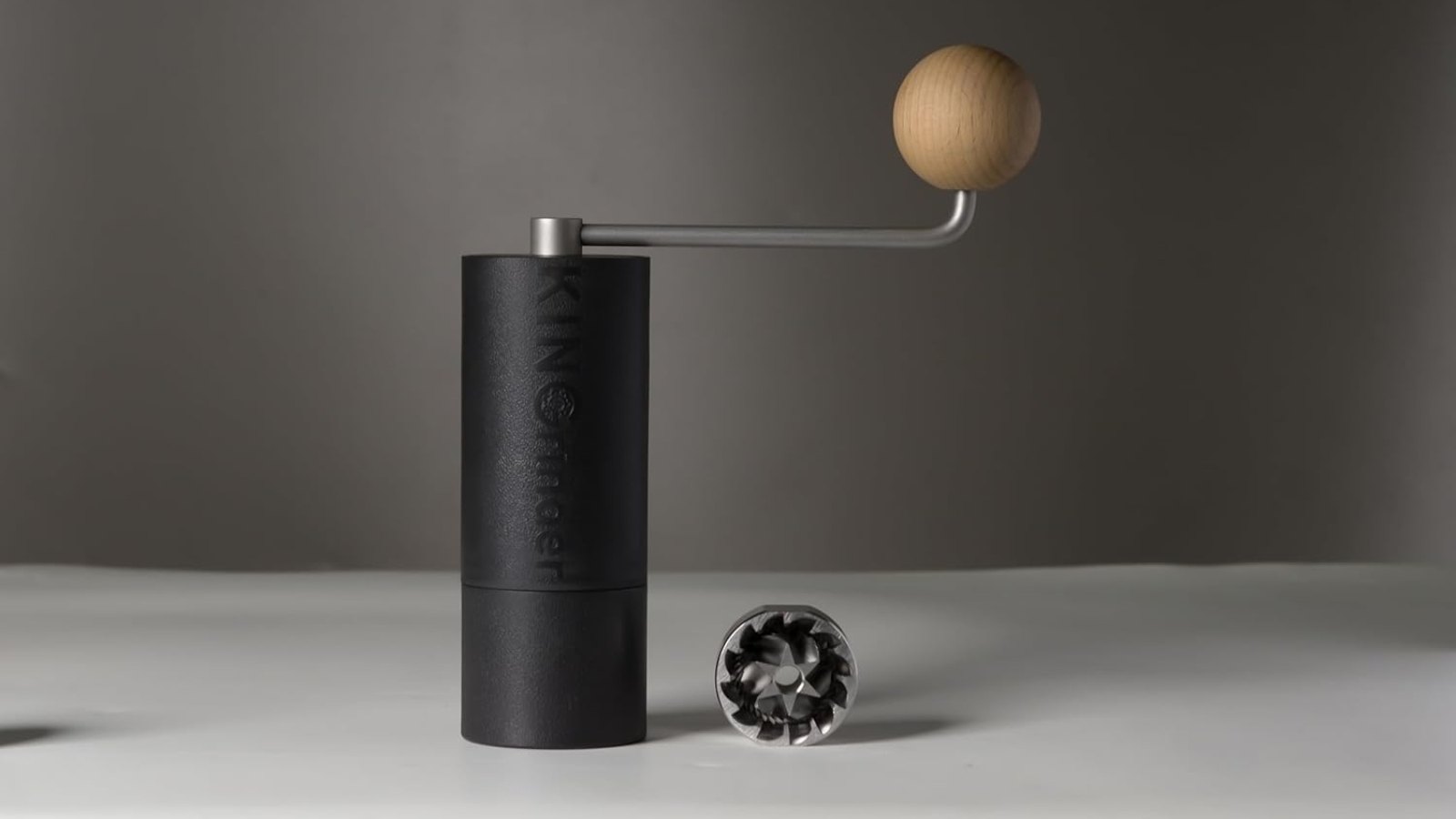
4. Kingrinder P Series Coffee Grinder
Our expert review:
Specifications
Reasons to buy
Reasons to avoid
If you lack counter space or you want to grind beans in the office, on a camping trip, or a weekend away, this cute compact grinder will work well.
Coffee expert and co-founder at Blended Bean Coffee, Tyler Pawlak, told me: 'Even though I normally use a motorized grinder for larger quantities, but I find the most enjoyment using my Kingrinder P series. This is a very simple, hand-crank grinder that comes in at less than $30 (for the cheapest model) making it extremely approachable for a newcomer to the world of coffee. It is super portable and can easily go on vacation or to work with you (mine lives in my briefcase). The only real downside is the hopper topping off at around 20g, which is great for a pour-over or just a single cup, but not really practical for someone who needs more product.'
Don't let its small size give you preconceptions though. When I examined the ground coffee in my test kitchen, I was struck by the precision and consistency. When I taste-tested the range of grinds on French Press, Moka coffee, Aeropress americanos, and shots of espresso, each cup of coffee had excellent taste and complexity.
As the only non-electric grinder on this list, the Kingrinder P Series Coffee Grinder does have the disadvantage of requiring a little arm strength to get it going. It can get tiring to create those super fine, espresso-ready grounds. However, since the grinding process is slower, it produces less heat, so your coffee won't be degraded. Plus, unlike electric grinders, there’s no static cling to worry about, keeping mess to a minimum.
Overall, the Kingrinder P Series punches well above its weight and price. This is one of the smallest and most affordable grinders on the market. Given that and the versatility, I highly recommend it to travellers or small-space dwellers who are serious about their coffee. Of course, if you’re brewing for multiple people daily, a larger electric option, like the Bodum grinder, will be more practical.
The best coffee grinder for espresso
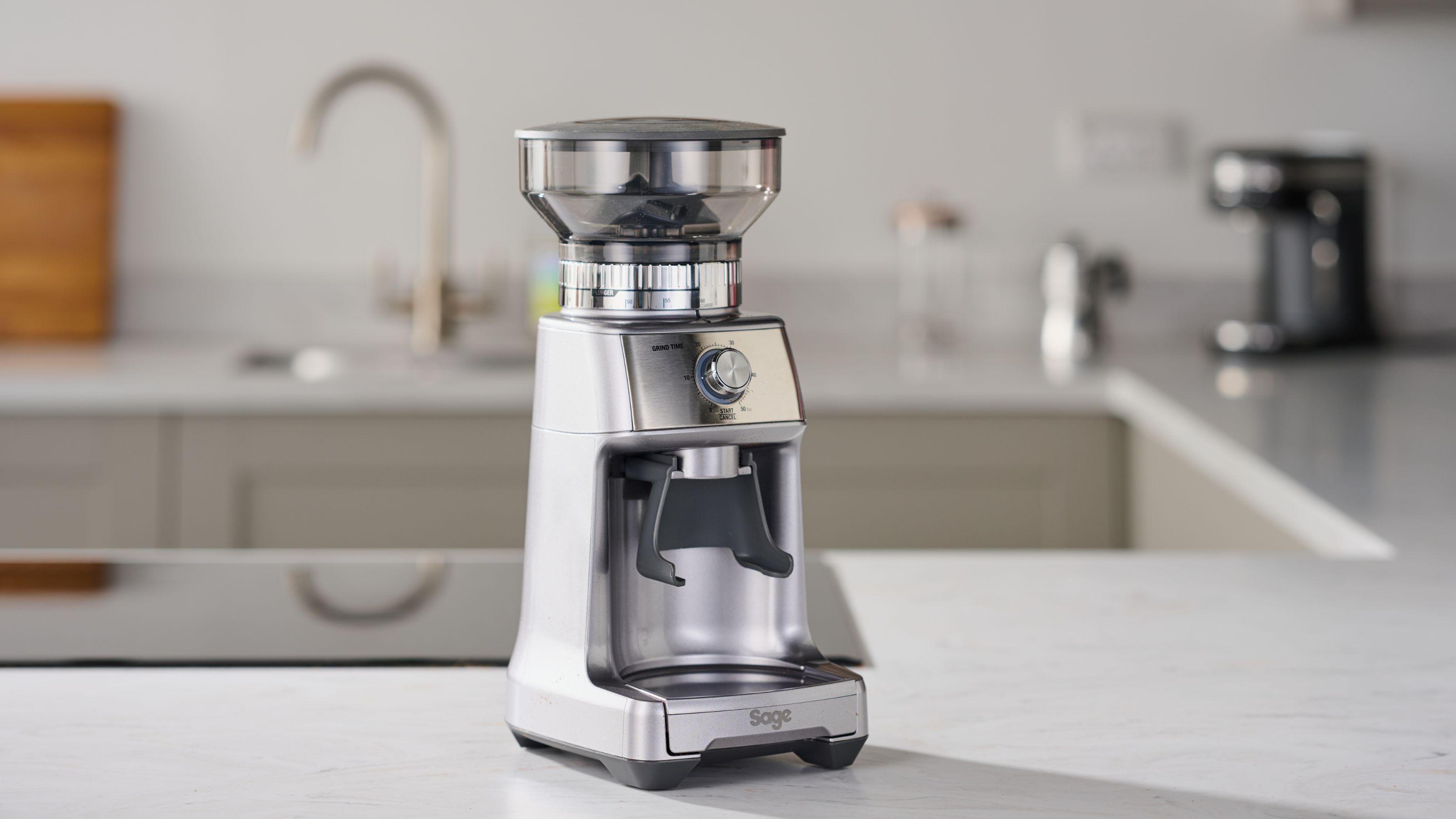
4. Breville Dose Control Pro Coffee Grinder
Our expert review:
Specifications
Reasons to buy
Reasons to avoid
Breville is known for espresso coffee, so I wasn't surprised when this excelled on creating superfine grounds for delicious shots. What I didn't expect was how good the Dose Control Pro would be on other coffees; the pour-over was one of the best results of all my tests.
The dial on the front has a timer for pre-set doses, it is easy for beginners to use, and it had just over a half of a gram’s retention which is impressive. It was also pretty speedy and quiet – you won't be waking up the house when you're making your morning caffeine shots.
When I asked barista trainer and coffee expert Alex Spampinato, he recommended this model as his personal favorite. He said that 'Breville's grinder is super easy to use, so I recommend it to everyone, including beginners. As you develop your barista skills, you realize just how much this grinder has to offer. I still use it now, with 12 years of coffee making behind me.'
The design is nice, especially if you have a matching Breville espresso machine, like the Bambino for example. It comes with a portafilter holder, but no receptacle for other ground types which is a big shame as it resulted in quite a messy process. There are plenty of beautiful coffee canisters on the market, but for the price of the Dose Control Pro, I wouldn't expect to have to buy extras.
The best large coffee grinder
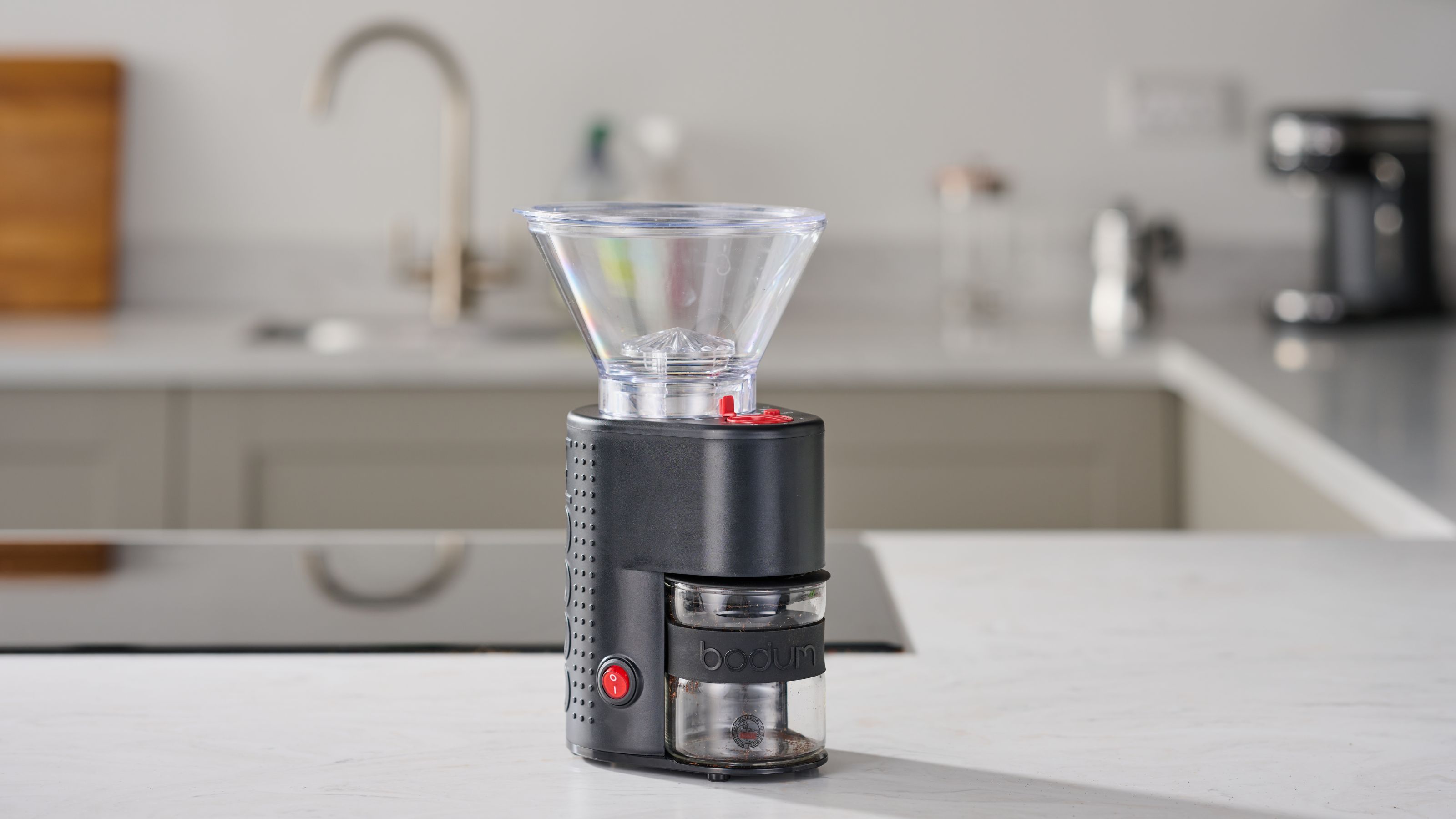
6. BODUM Bistro Premium Electric Grinder
Our expert review:
Specifications
Reasons to buy
Reasons to avoid
The sixth and final coffee grinder in this guide was recommended by our own product tester and ex-barista, Laura Honey. I am already a huge fan of the Bodum brand: both Laura and I have tested and rated the Bodum French press, and we are now proud collectors of their elegant carafes. While the Bodum coffee grinder is not so chic, it smacks of that signature quality. This is a solid option for basic but reliable, large-batch grinding.
Firstly, I loved the large dimensions of this grinder, which comes with a generous 200g hopper. You could easily grind a batch of fresh beans to fill a large French Press or a 10-cup drip coffee maker, and serve a whole table of guests. I also rate the glass receptacle which keeps the process fairly mess-free despite the large proportions.
It is incredibly straightforward to use. I didn't need to read pages of instructions to set up and use this machine, which is always a treat. There's a simple push button and pre-set timer, so you can grind the exact amount of coffee needed. If you're new to coffee, this will be easy to navigate without wasting time (or precious beans).
In terms of grind consistency, it's not an immediate winner; it takes a bit of tampering with. I found it best to err on the larger side of medium to get a good pour-over grind. When I went for the true medium setting, I had a lot of very fine grounds and this muddied the overall flavor profile, but the coffee was still very drinkable with a fresh taste and light consistency. With 12 adjustable grind settings, you can make anything from French press to espresso.
The Bodum was also quite noisy in testing, but I wasn't expecting miracles, since it swoops well below $100, making it one of the cheapest models in this guide. If noise bothers you, you'll want the more premium, quieter Fellow Ode grinder further up the page.
The ones that just missed the list
If you liked the look of those, but want a few more options, here are the coffee grinders that just missed the list.
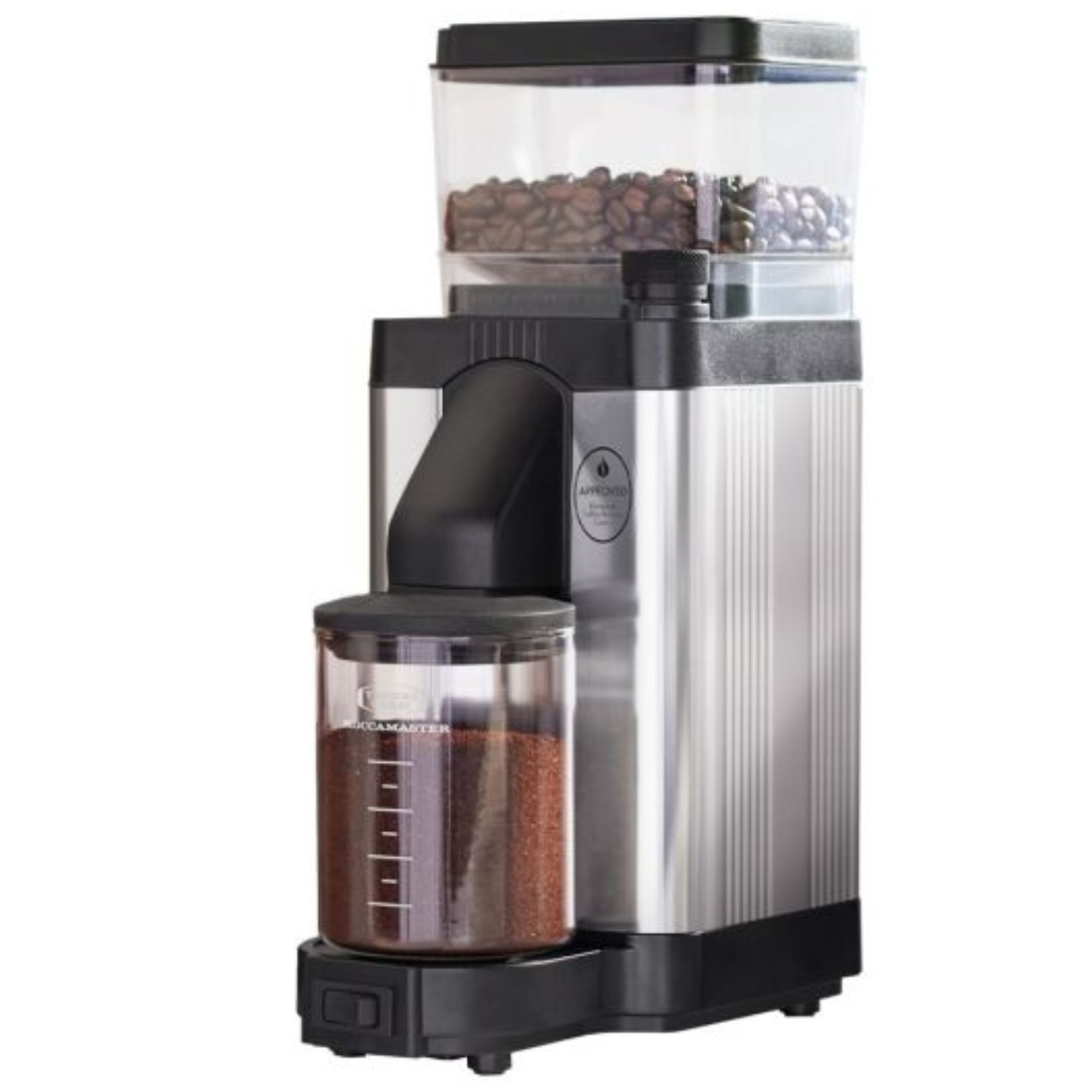
All about mindful grinding, this sustainably made grinder feels like the real deal. It's sturdy, quick, and quiet. Whilst the upfront cost might look like a lot, it's repairable for life. I wish it had more than nine settings.
Read more in our Moccamaster grinder review
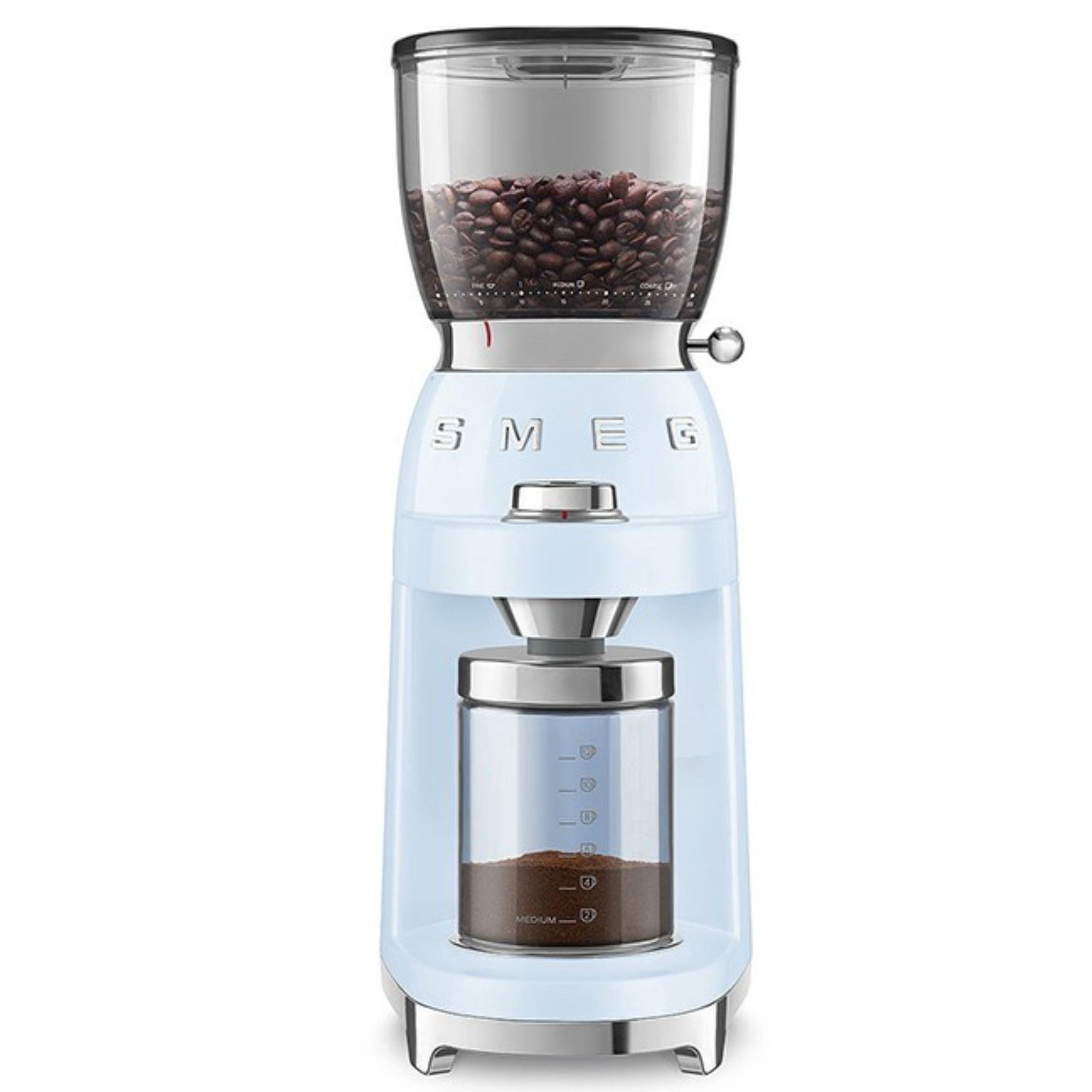
In true Smeg style, this delivers on brains and beauty. Whilst it was incredibly consistent on finer grind settings, it was less distinct on coarse grinds. If you like French press, this might be one to swerve. It's also very expensive.
Read more in our Smeg Coffee Grinder review
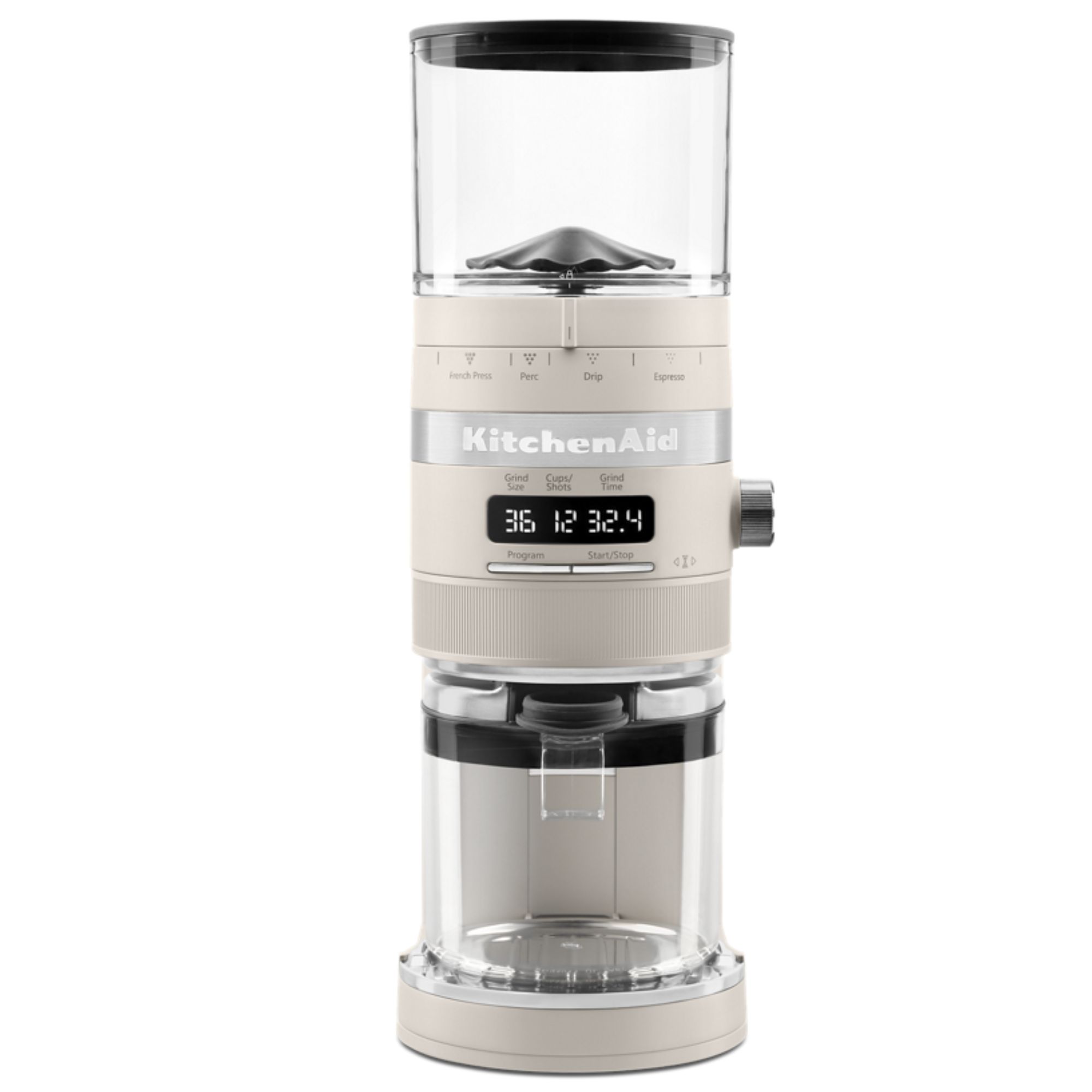
This grinder is pretty basic but extremely consistent. I didn't struggle with static and found it easy to use with a portafilter or grounds container. It just missed out on the main list by a fine margin.
How to choose the best coffee grinder for you:
Coffee grinders fall into a range of categories. CoffeeFriend CEO Aurimas Vainauskas told me about the different types of coffee grinders on the market. 'Coffee grinders can be put into several different categories based on a few different features. These are the categories you’re likely to encounter:
Manual coffee grinders vs electric coffee grinders
Manual coffee grinders are particularly compact, lightweight and mobile. They’re as convenient to use at home as they are to take with you on a trip. Manual tools are perfect for producing small amounts of ground coffee for various coffee makers or ceramic filters. Not to mention that grinding your beans manually can turn into a beloved daily ritual – and that manual grinders are much cheaper than electric ones!
Still, if you’re a sworn fan of espresso, an electric coffee grinder is definitely your best bet. Manual grinders aren’t really suited for grinding beans that finely. Using a manual grinding tool, you won’t be able to grind beans straight into a portafilter either, so your coffee won’t be as fresh as it could be. An electric grinder is a much better solution for those who tend to brew larger amounts of coffee too. It’s suited perfectly for espresso makers and coffee machines, as well as various other brewing tools.
Blade grinders vs burr grinders
Even though blade grinders are still popular nowadays due to their compactness and price, they aren’t really capable of grinding coffee properly. To obtain a consistent grind (and a consistent grind is crucial for a truly delicious, well-balanced brew), you’ll need a burr grinder. There’s no need to throw your old blade grinder out, though: use it to grind spices instead.
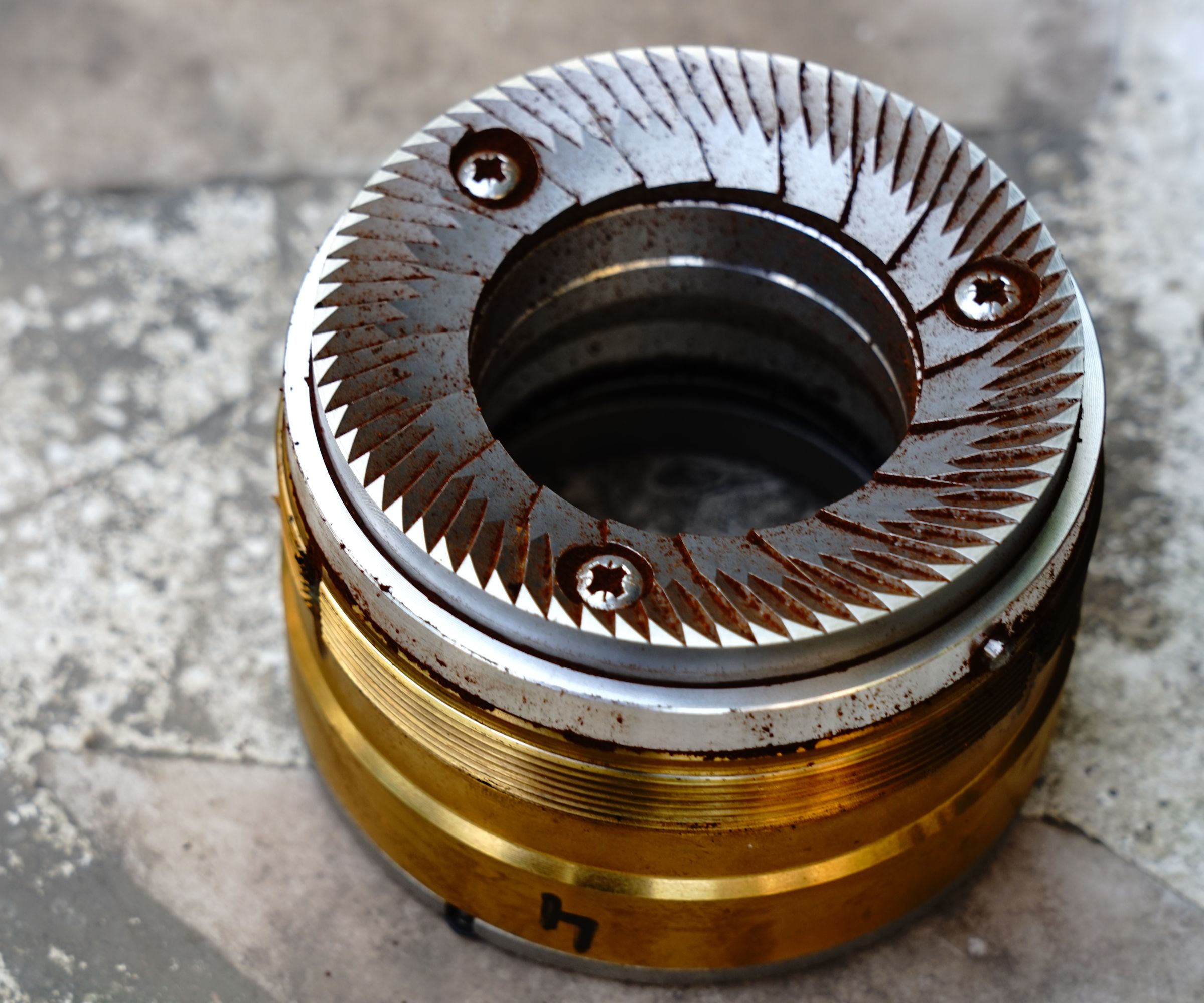
A flat burr coffee grinder
Grinders with flat burrs vs grinders with conical burrs
When it comes to burr grinders, they’re divided into two further categories: there are those with flat burrs and those with conical burrs. They aren't in direct competition, as they have different pros and cons depending on your tastes. What they do is they unveil different flavors: conical burrs are suited better for traditional espresso (strong and full-bodied), while flat burrs are ideal for the modern take on the classic drink, which is focused on ensuring purity of flavor.
Grinders with ceramic burrs vs grinders with steel burrs
There’s lots of discussion as to which material is better when it comes to burrs, but, again, there’s no right answer. Just like in the case of conical and flat burrs, what this comes down to is subtle differences in flavor. It’s thought that ceramic burrs produce more coffee dust, which endows the brew with a fuller body and ends up masking separate flavors. Steel burrs, on the other hand, result in a more consistent grind and a 'cleaner' taste. This is why some people believe that ceramic burrs are suited better for traditional espresso and coffee blends, while steel burrs are perfect for modern espresso, filter coffee and specialty coffee varieties.
How we tested these coffee grinders
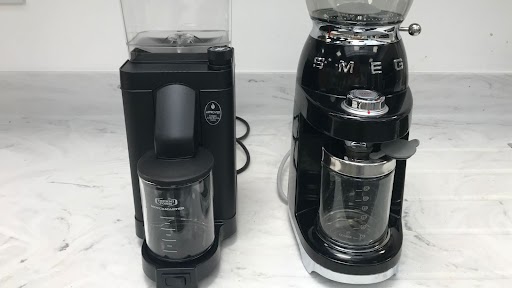
Moccamaster and Smeg coffee grinders head to head on test
We take coffee very, very seriously, so when deciding on the best coffee grinder we decided to compare all of the models we tested in a side-by-side test. There are so many factors that can go into making an amazing cup of joe, so we tried to control as many of these as possible in order to make sure that all of the grinders we tested were on a level footing. You can find out more about how we tested the best coffee grinders, and about how Homes & Gardens reviews.
The price of the grinders in this guide ranges from around $60 to over $300, but we were sure to test them fairly and without bias. We tested every possible grind in every grinder, and carried out a blind taste test for each of the drinks we made with the resulting ground beans.
We found that a few of the grinders we expected to come out on top actually fell below some less-expected options. We considered the quality of the coffee, the user experience including noise levels and the feel of the product, and the mess and retention that came with each model.
Reviewed by

Lydia is a trained chef and recipe writer, which makes her an expert in flavor. She's in charge of kitchen product testing here at Homes & Gardens, as Kitchen Appliances Editor. Lydia trained at Leiths School of Food & Wine. She has shadowed professional baristas, attended tasting masterclasses at Illy's University of Coffee, and even volunteered in a Guatemalan roastery. Her drink of choice is a frothy, Italian cappuccino (alongside a croissant, of course).
Coffee Grinder FAQs
Do I really need a coffee grinder?
If you're an espresso obsessive, you need a coffee grinder. Fresh-ground coffee is simply better than anything else. Coffee starts to lose its flavors a few hours after grinding, so for the very best, freshest flavors, a coffee grinder is an essential. If you just drink coffee for the caffeine and don't much care about flavor, I wouldn't bother.
Are burr grinders best?
Yes, burr grinders are best. That's because they can achieve a finer, more consistent grind than blade grinders. Blade grinders work like blenders, whizzing up the beans, so need a lot of monitoring to ensure a proper grind. Burr grinders, however, grind beans more consistently, which in turn means a more even shot of espresso.
Why are coffee grinders so expensive?
A good coffee grinder is expensive because it needs quality steel, and in the case of electric grinders, a powerful motor to grind through the coffee. Add in bonus features and you'll find a good grinder is usually around $200.
Sign up to the Homes & Gardens newsletter
Design expertise in your inbox – from inspiring decorating ideas and beautiful celebrity homes to practical gardening advice and shopping round-ups.

Lydia is the Kitchen Appliances Editor for Homes & Gardens, testing everything from air fryers and mixers to juicers and coffee machines. She trained in Culinary Arts at Leiths School of Food & Wine and previously served as the Recipe Editor for Mindful Chef.
-
 Miley Cyrus breaks a cardinal decorating rule with her 'floating table' – her unexpected layout transforms a dead space into a stylish breakfast area
Miley Cyrus breaks a cardinal decorating rule with her 'floating table' – her unexpected layout transforms a dead space into a stylish breakfast areaThe singer tosses aside the maxim that furniture shouldn't be floating in the middle of the room with an innovative kitchen layout
By Sophie Edwards Published
-
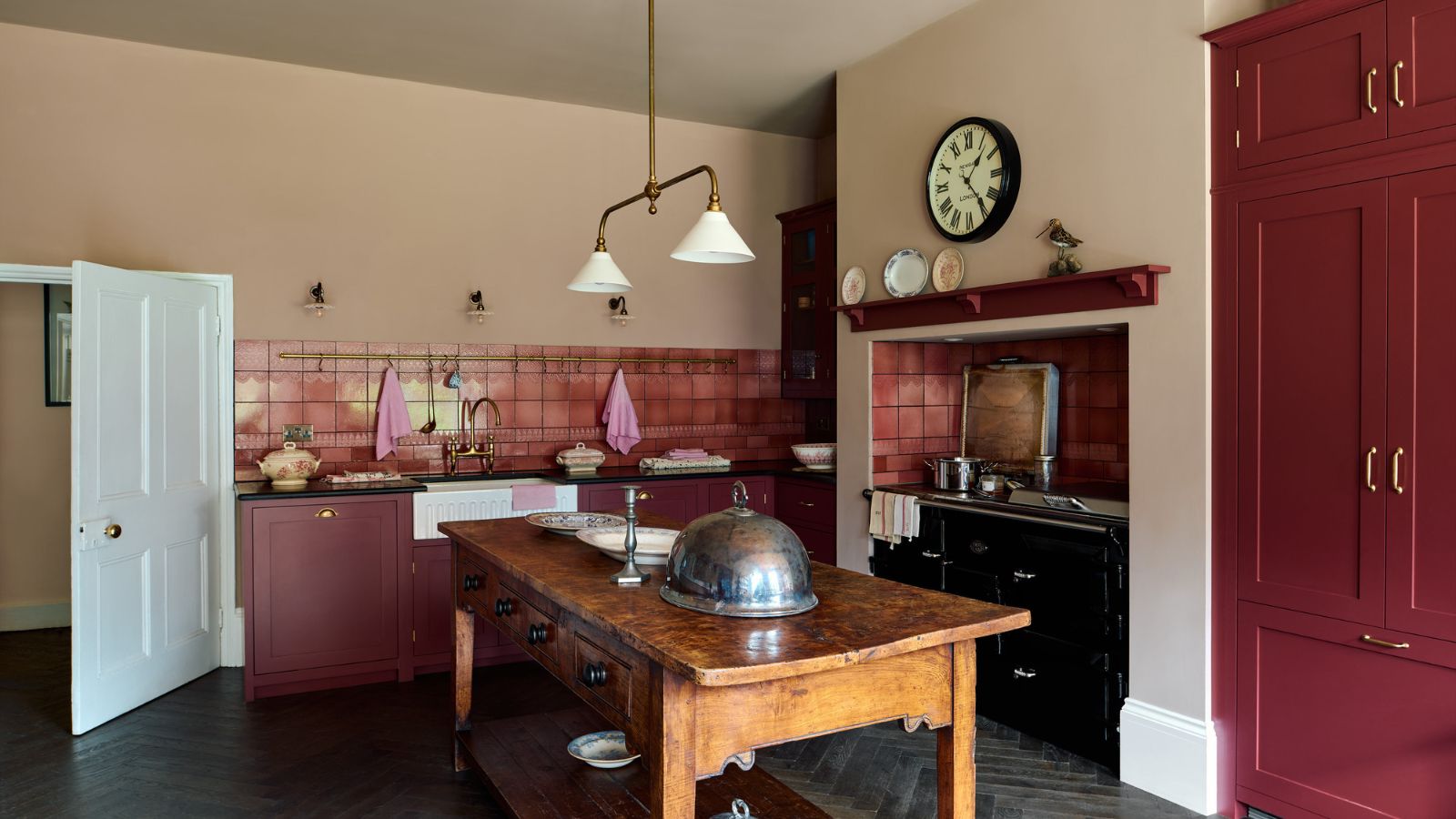 It’s a concept straight out of a fashionista's playbook, but I used the Sandwich Method to organize my kitchen shelves – it’s never looked sleeker
It’s a concept straight out of a fashionista's playbook, but I used the Sandwich Method to organize my kitchen shelves – it’s never looked sleekerIt transformed messy to mesmerizing in a matter of seconds
By Punteha van Terheyden Published
-
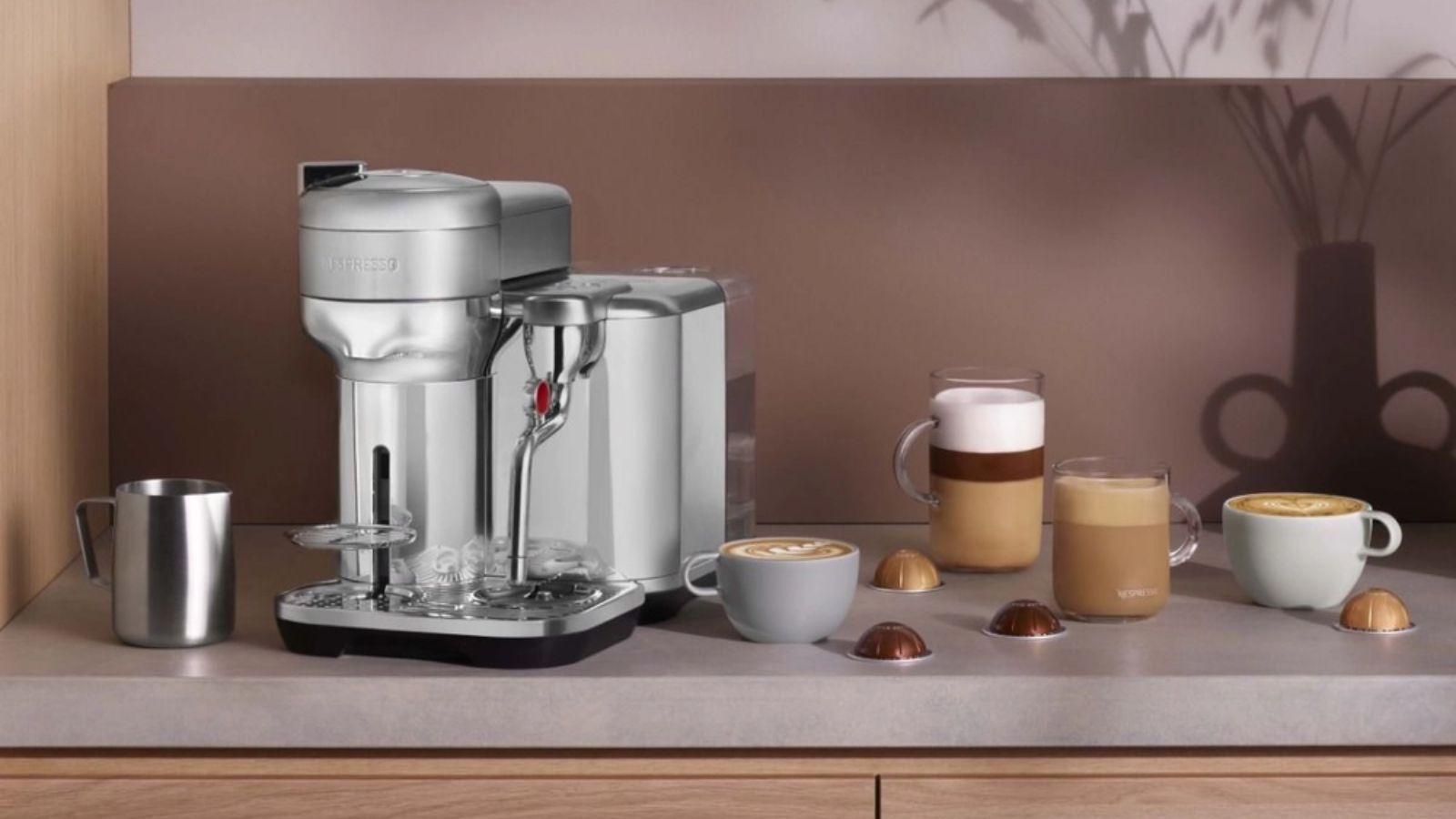 Nespresso vs espresso – tested for taste, cost, and technical differences
Nespresso vs espresso – tested for taste, cost, and technical differencesA barista offers some perspective on the Nespresso vs espresso debate. She's tested them for taste, and accounted for cost differences too
By Laura Honey Published
-
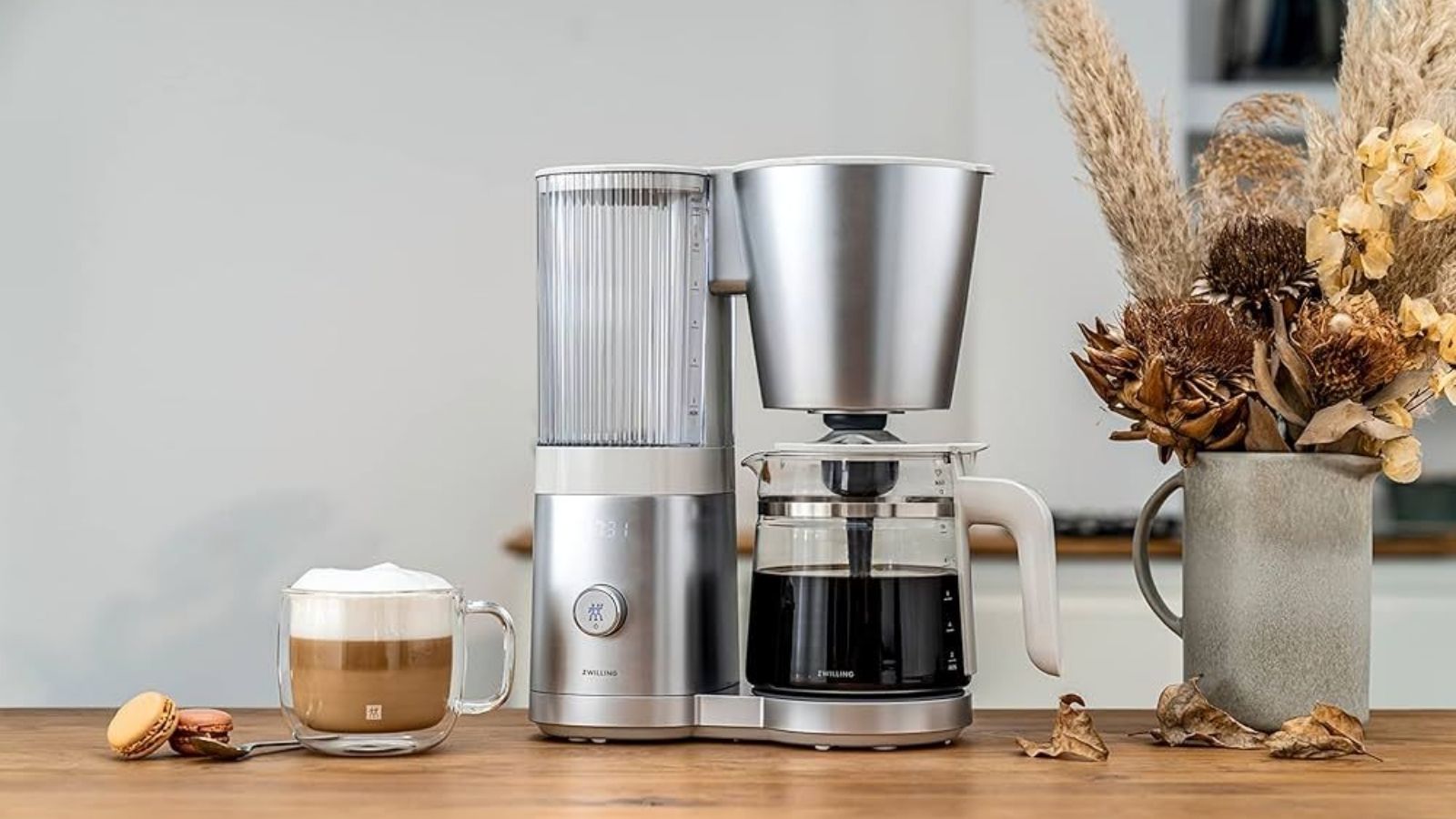 I just tested the best small drip coffee maker – and it's surprisingly stylish too
I just tested the best small drip coffee maker – and it's surprisingly stylish tooI've tested a range of filter coffee options and it turns out that the best small drip coffee maker is beautiful, sleek, and smart too
By Laura Honey Published
-
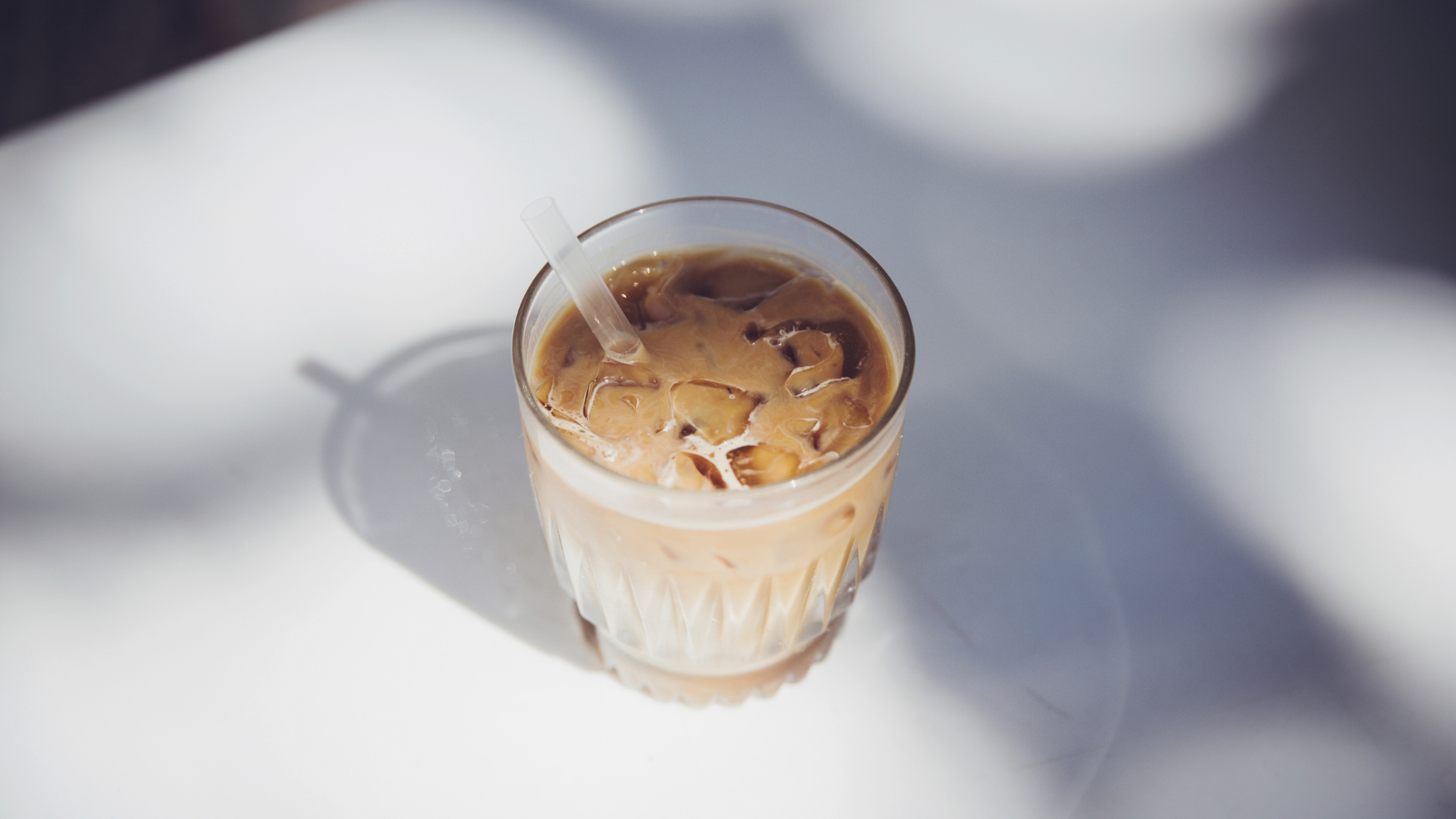 The best iced coffee makers – save hundreds by switching your favorite coffee shop drink to a delicious homemade one
The best iced coffee makers – save hundreds by switching your favorite coffee shop drink to a delicious homemade oneForget takeout iced coffee, these machines will keep you cool and caffeinated all day long
By Lydia Hayman Last updated
-
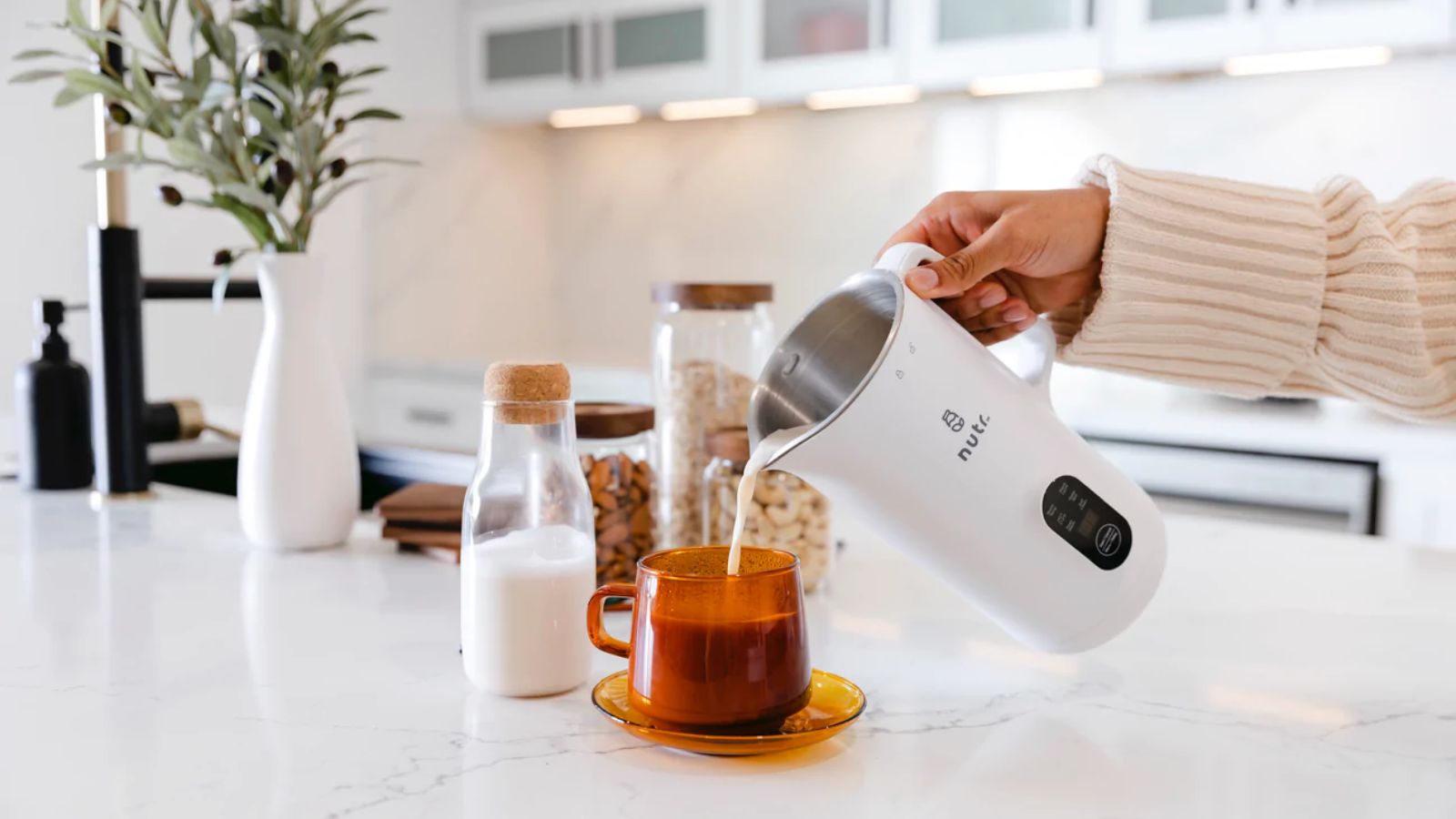 Best nut milk makers: tested by an expert vegan
Best nut milk makers: tested by an expert veganThese are the best nut milk makers for almond, oat, coconut milk and more. Our expert vegan barista tested them to see which is best
By Laura Honey Published
-
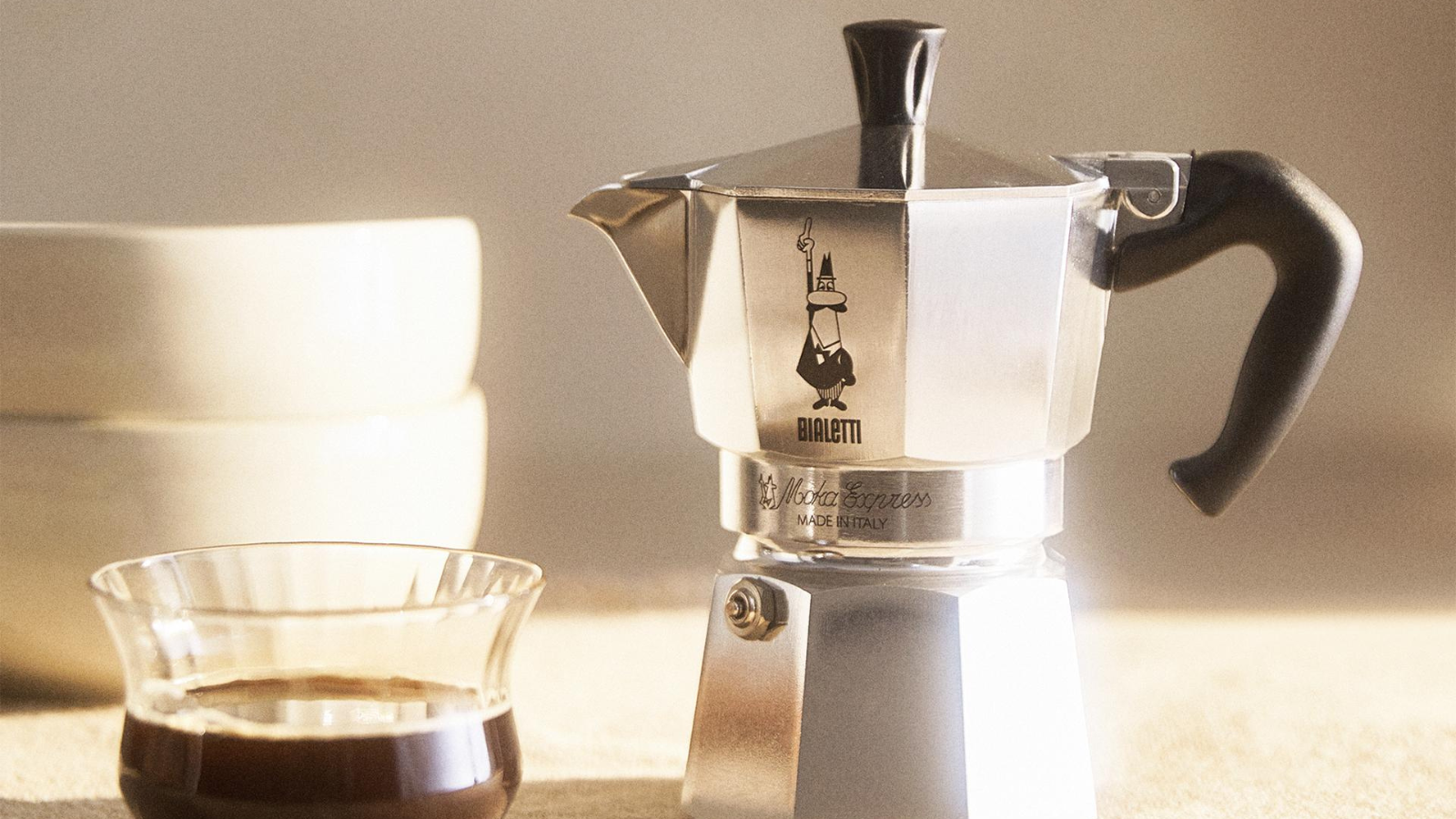 The best moka pots for easy Italian-style coffee straight from your stovetop
The best moka pots for easy Italian-style coffee straight from your stovetopOur tried-and-tested moka pots for brewing delicious coffee at home – the stylish, Italian way
By Lydia Hayman Last updated
-
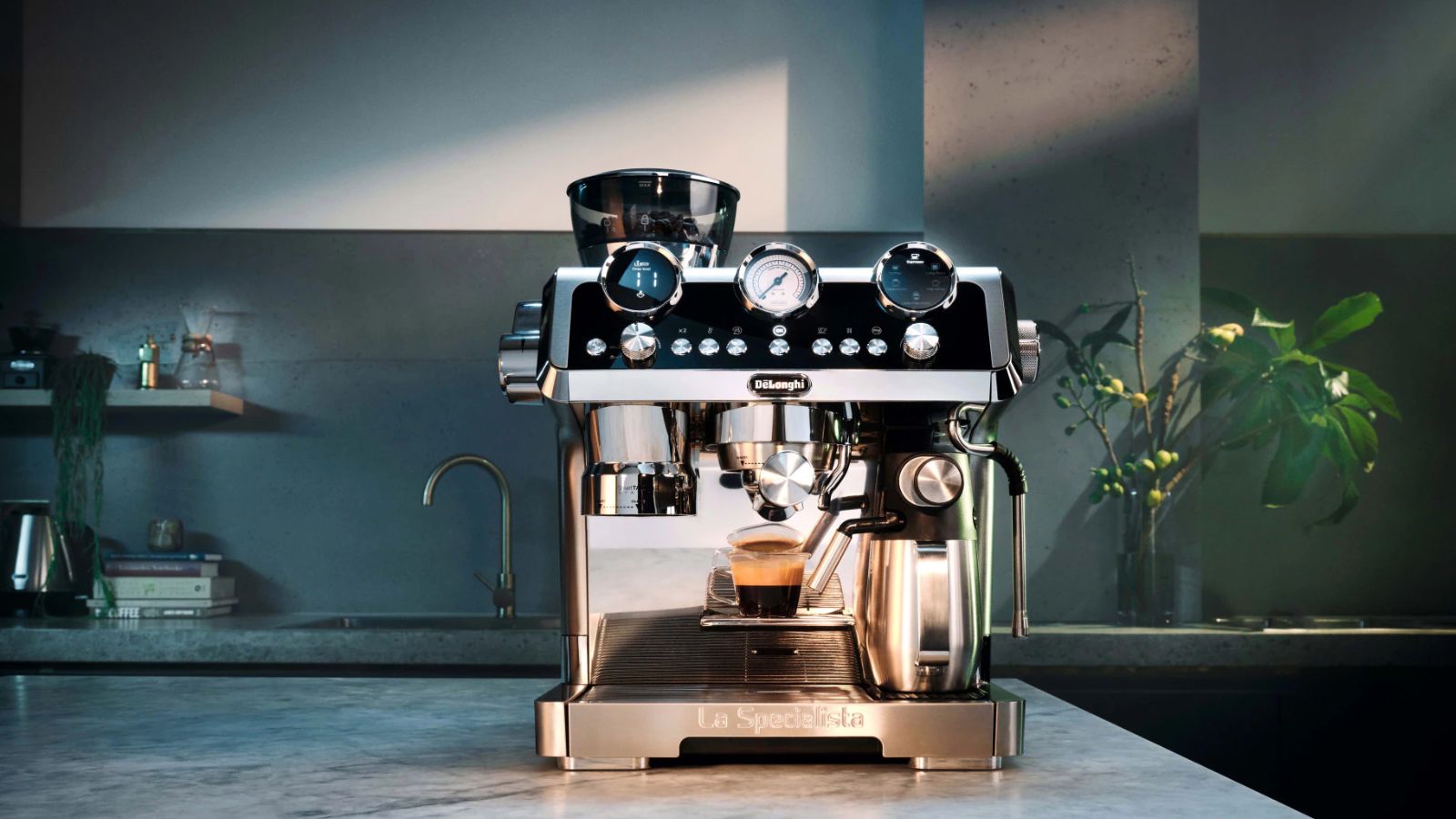 The best coffee makers with grinders for the freshest, most flavorful brews
The best coffee makers with grinders for the freshest, most flavorful brewsFrom luxurious espresso machines to tiny drip coffee makers, these are the best coffee makers with integrated grinders
By Lydia Hayman Last updated
-
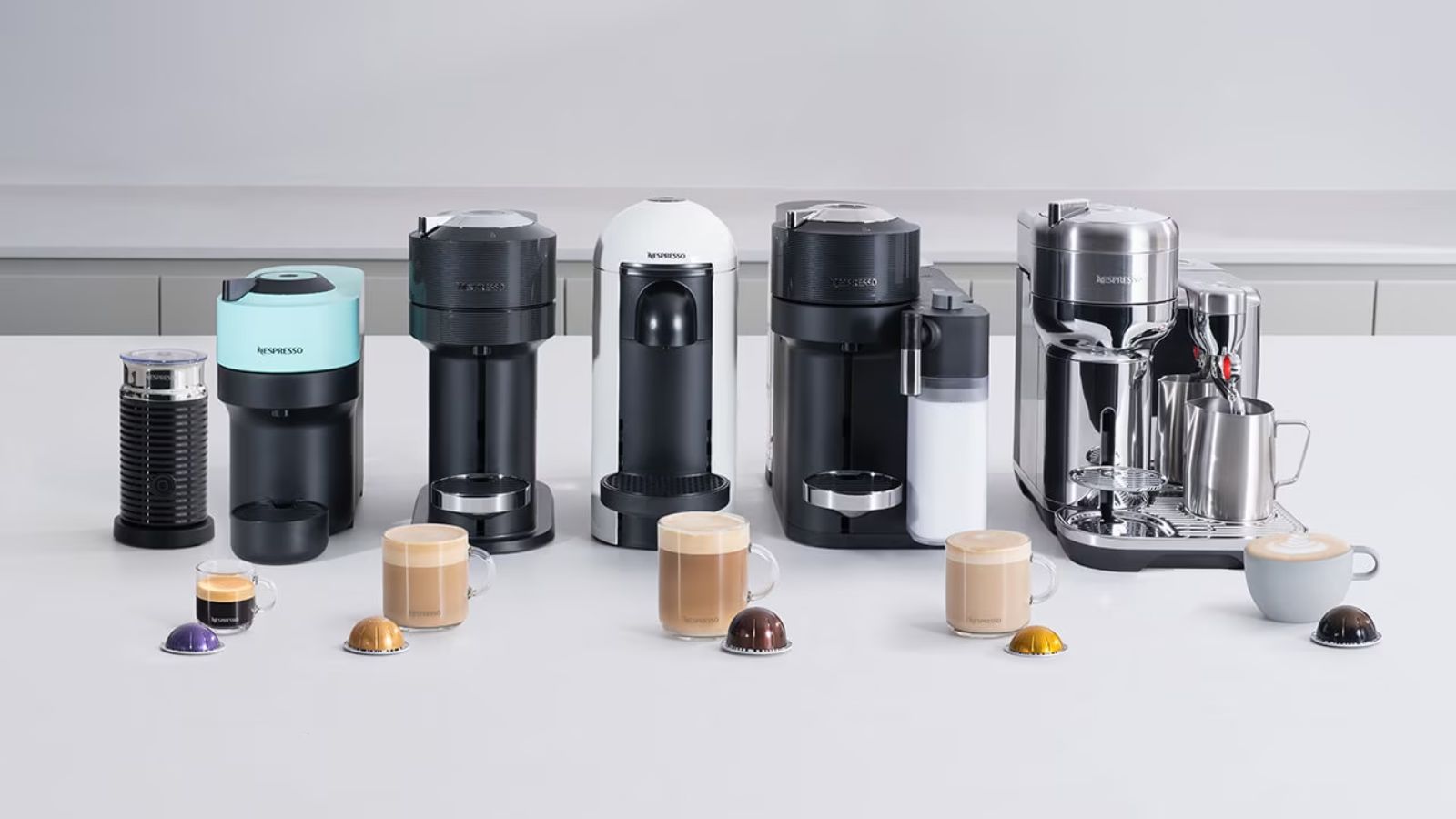 Best Nespresso machines – for every kind of coffee drinker
Best Nespresso machines – for every kind of coffee drinkerHow do you know whether you want the Lattissima or the Creatista, the Vertuo or the Original, and the Essenza or the Pop? We have the answers
By Laura Honey Last updated
-
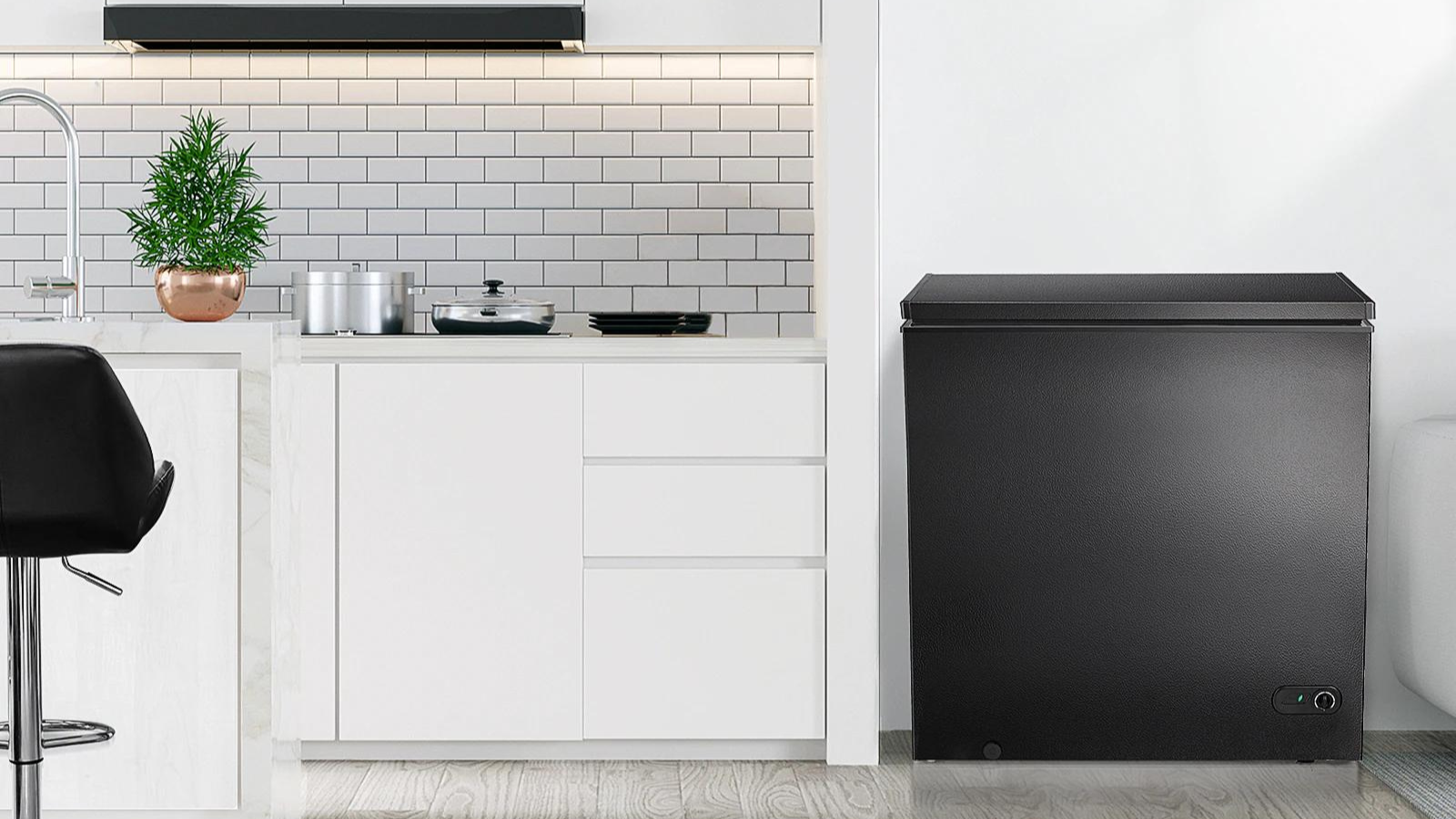 Best chest freezers: spacious, dependable, and practical
Best chest freezers: spacious, dependable, and practicalI've researched the best chest freezers on the market. From garage-friendly to enormous capacity, these are my top picks.
By Lydia Hayman Last updated